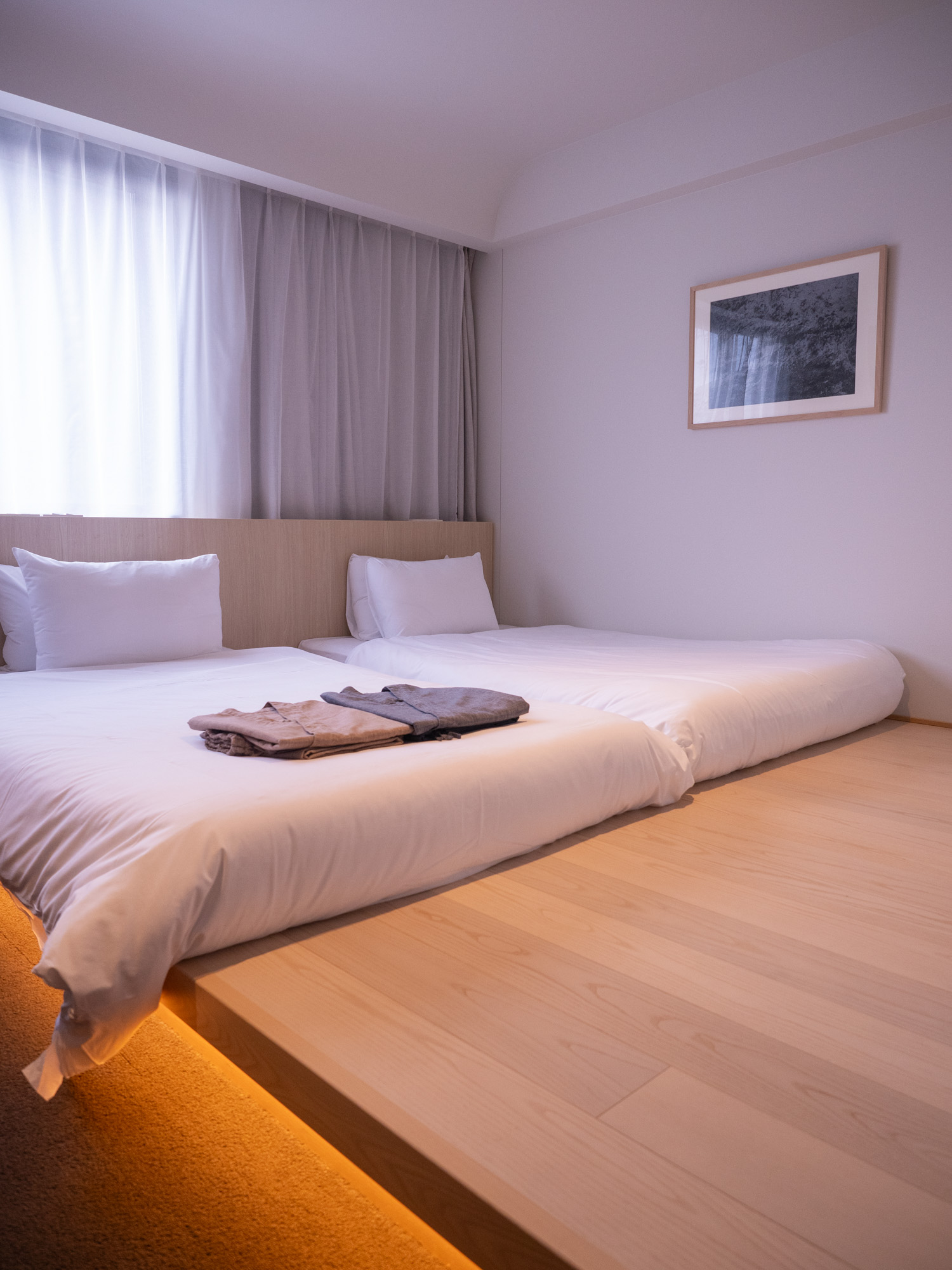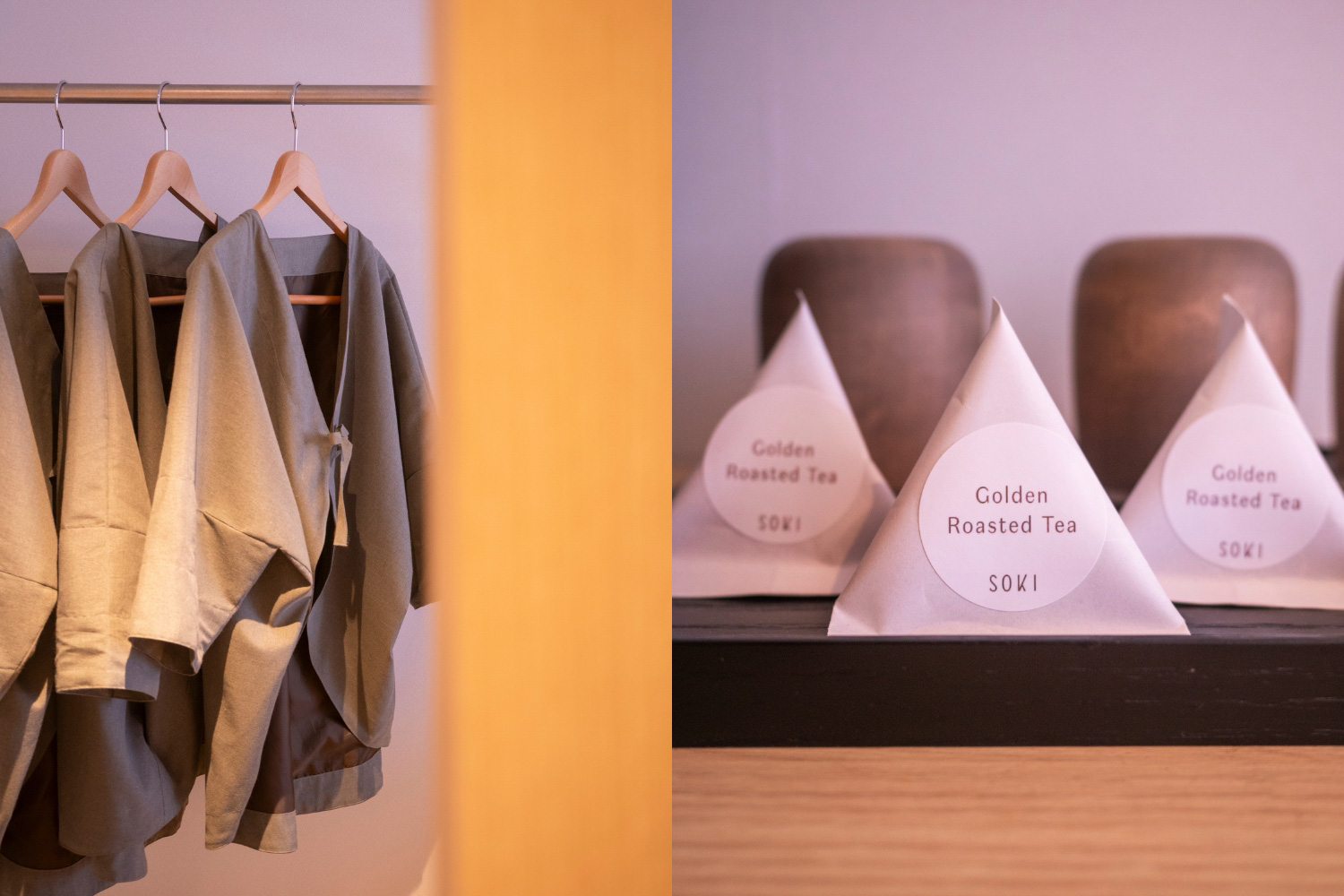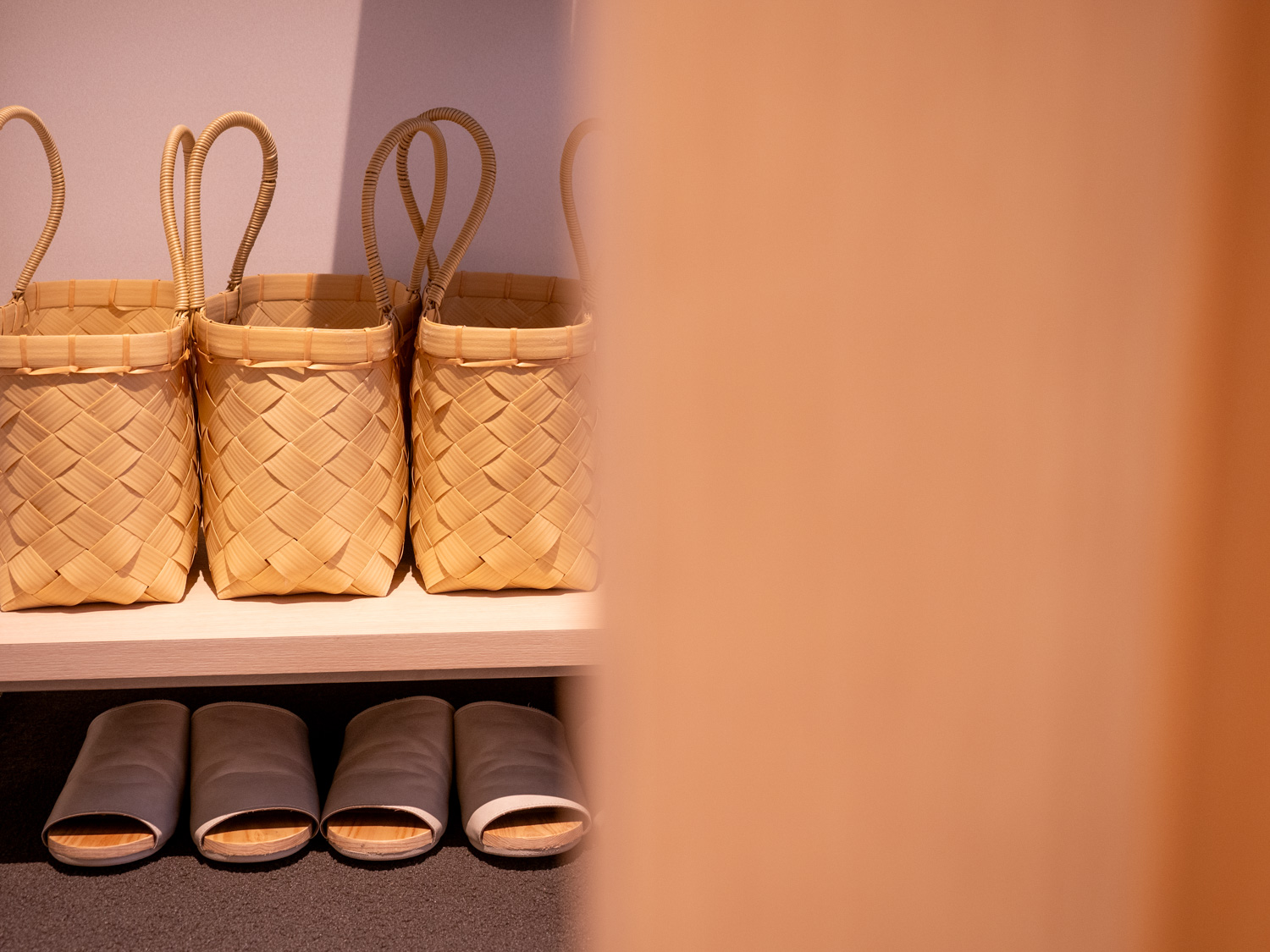The Prime 5 Pictures Areas in Kanazawa
Kanazawa, a Japanese metropolis identified for its well-preserved Edo-era districts, lovely gardens, and artwork museums, is a gem it is advisable to add to your Japan itinerary. Should you’re searching for the most effective Kanazawa pictures places to your upcoming go to, that is simply the information for you.
Should you’ve been studying or following The Wandering Lens for some time, you’ll know the way a lot I like Japan. Having visited the nation over 11 instances, it’s someplace that’s so particular to me, nevertheless, it wasn’t till my most up-to-date go to that I managed to get to Kanazawa, and I used to be so pleasantly shocked.
It had been described to me as a quieter Kyoto; much less crowds, historic districts and loads of pictures alternatives.
Kanazawa was precisely that! Whereas it doesn’t have the quantity of temples and sights as Kyoto (and I completely advocate visiting Kyoto), Kanazawa is much much less crowded which suggests you’ll be able to wander slowly and seize the ornate particulars of town, the landscapes, the river, gardens, and the structure. I’d advocate spending no less than two days exploring Kanazawa, there’s additionally the sensation you possibly can keep for weeks, simply taking it simple, strolling round and photographing this lovely metropolis.
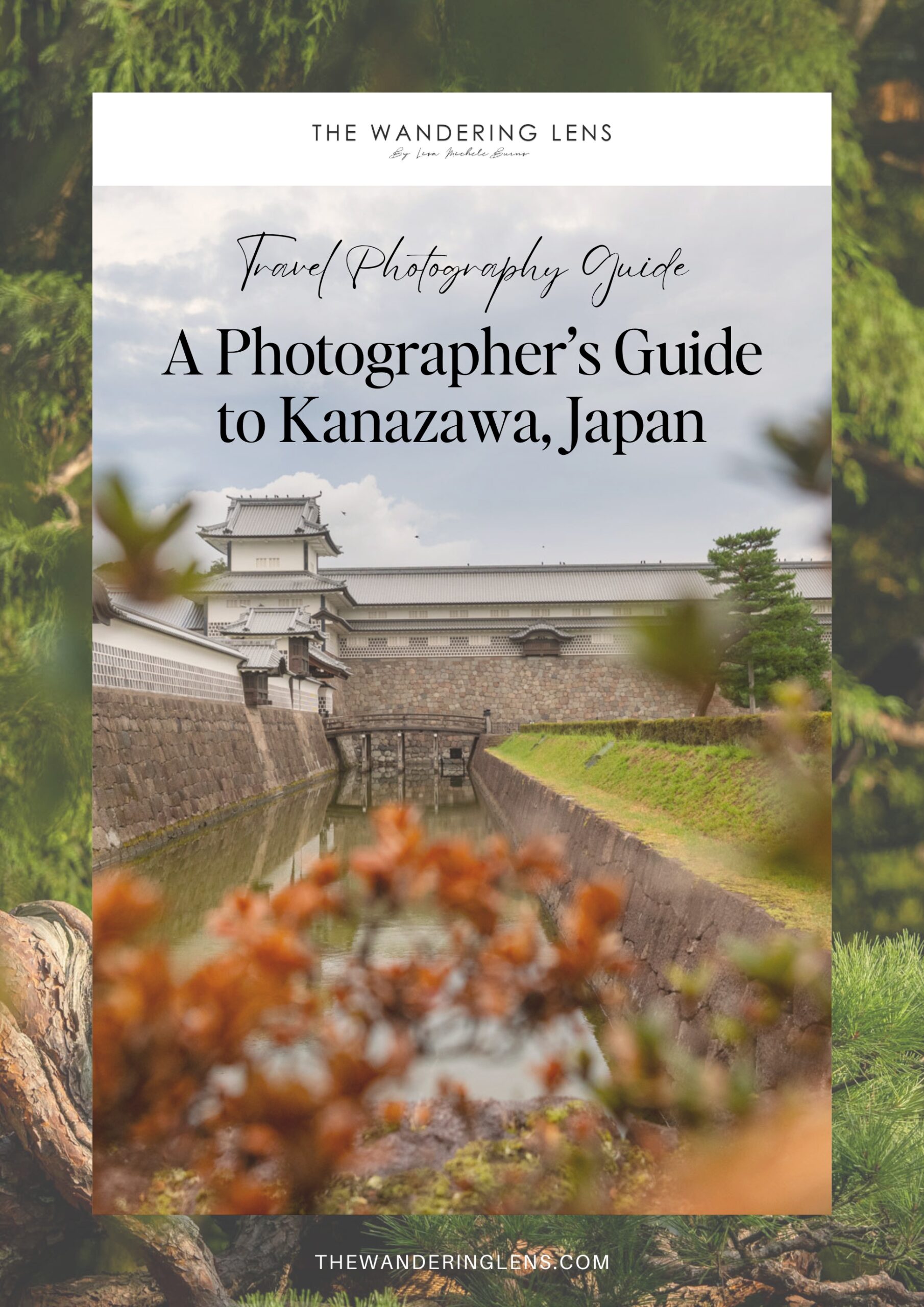
It’s peaceable truly, that’s in all probability the most effective phrase to explain it. Positive you’ll nonetheless discover different vacationers within the standard areas, however about 80% lower than Kyoto, Osaka, or Tokyo. Really, I can’t vouch for cherry blossom season or autumn, I’m certain it’s fairly busy in these durations because of the recognition of the gardens with Japanese vacationers additionally.
Alas, let’s take a peek at some suggestions for what to {photograph} in Kanazawa…
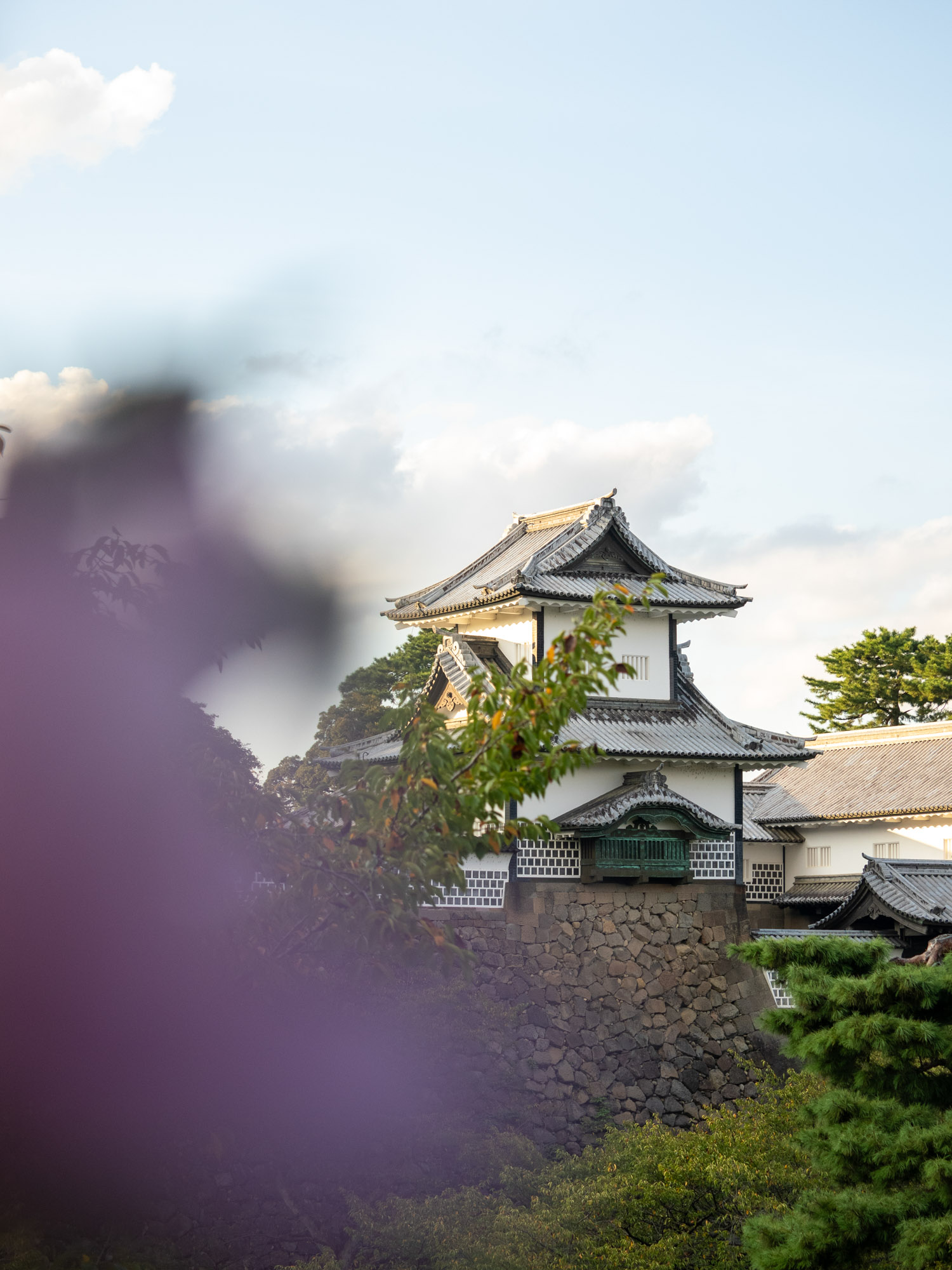
Kanazawa Pictures Areas – advisable by Lisa Michele Burns of The Wandering Lens
#1 Kenrokuen Backyard
As one in every of Japan’s “Three Nice Gardens,” it exemplifies the last word in Japanese panorama backyard design, Kenrokuen gives an ever-changing canvas that captivates photographers and nature lovers alike.
Highlights embrace the fragile hues of cherry blossoms in spring, azaleas and irises in early summer time, vibrant foliage in autumn, and the snowy landscapes and yukitsuri (snow-hanging ropes) in winter, designed to guard the branches of pine timber from heavy snow.
The backyard is dwelling to a number of tea homes, bridges, and the enduring Kotoji lantern, providing a glimpse into Japan’s cultural traditions. It’s possible you’ll get fortunate and see a crane nestled in one of many Neagari Pine, in any other case, you’ll have the ability to {photograph} town skyline from numerous vantage factors across the backyard, or get a bit nearer to the small print and deal with the flowers, greenery and fantastically manicured designs.
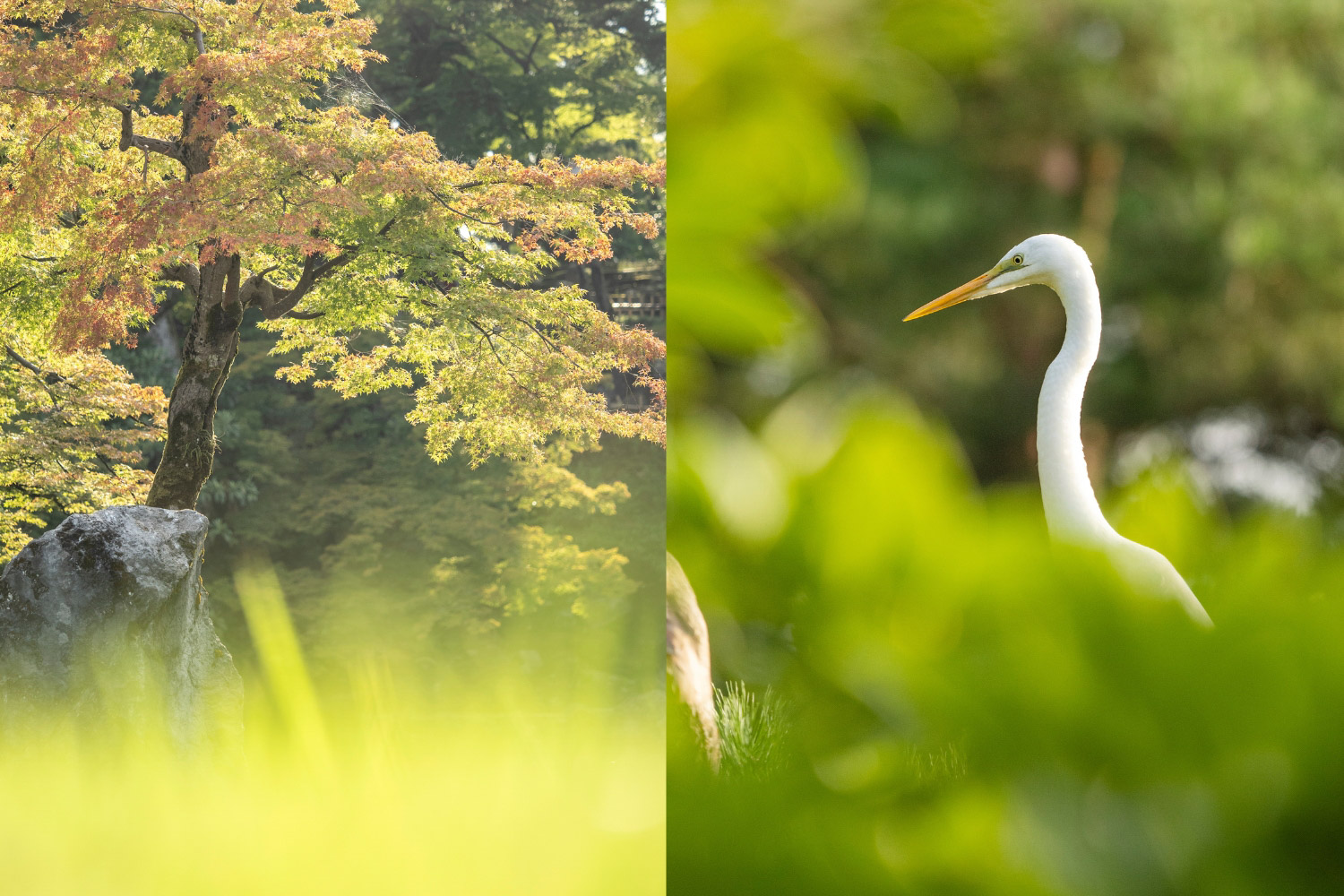
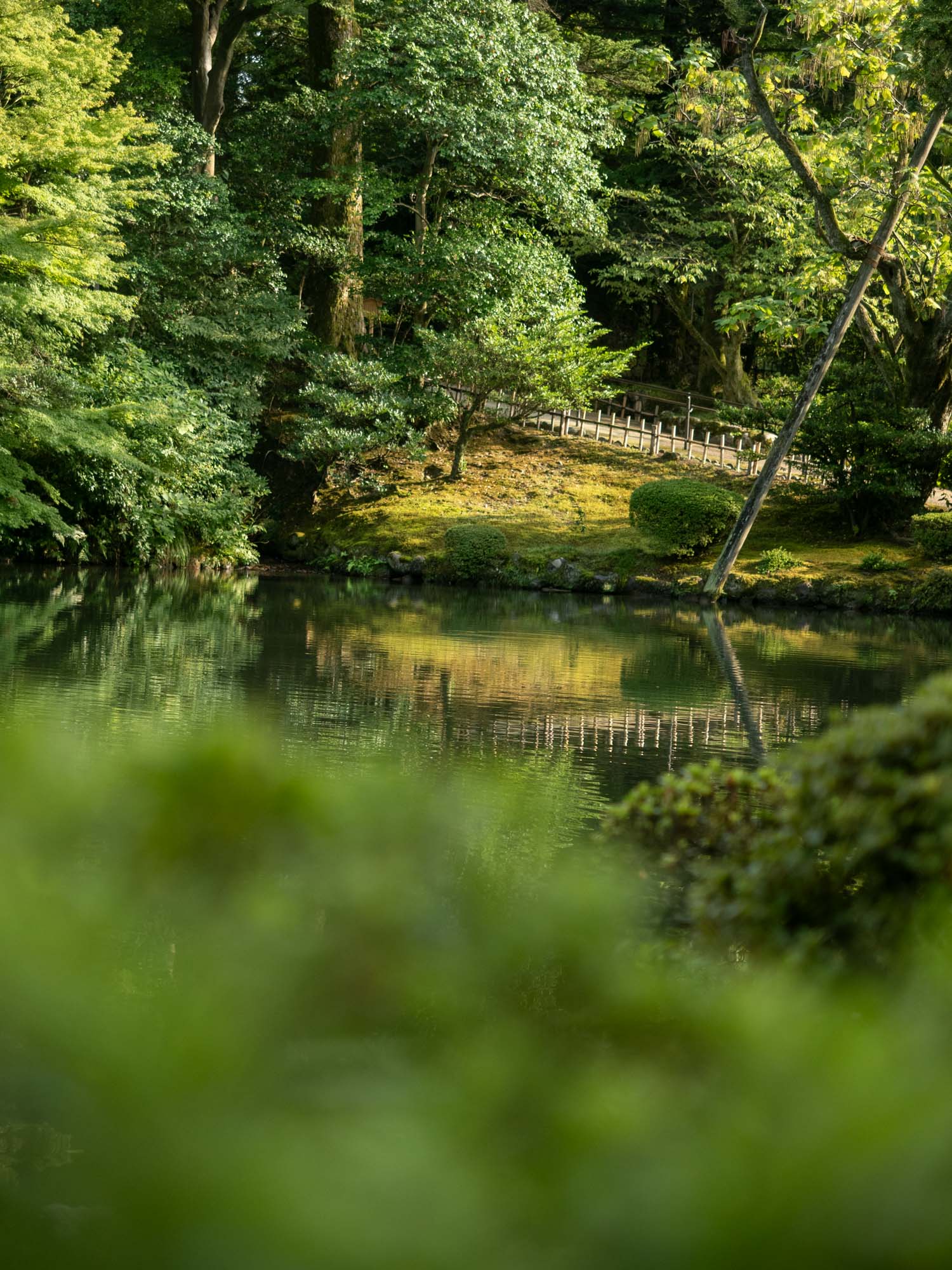
Should you exit by the Katsurazaka Gate, you’ll be able to cross the bridge into the Kanazawa Fort grounds, simply connecting two photogenic places of town.
Kenrokuen Backyard Opening Instances:
- Kenrokuen Backyard is open to the general public year-round.
- Opening hours are from 7:00 AM to six:00 PM from March to October (spring to autumn) and from 8:00 AM to five:00 PM from November to February (winter).
- These hours could also be prolonged throughout particular occasions or seasons, such because the cherry blossom viewing interval in spring.
Ticket Costs:
- Admission Charge: The entry charge for Kenrokuen Backyard is 320 yen for adults and 100 yen for kids.
- Annual Passport: For individuals who want to go to the backyard a number of instances all year long, an annual passport is out there for 1,020 yen, providing limitless entry if you happen to’re eager to return for cherry blossoms or autumn leaves!
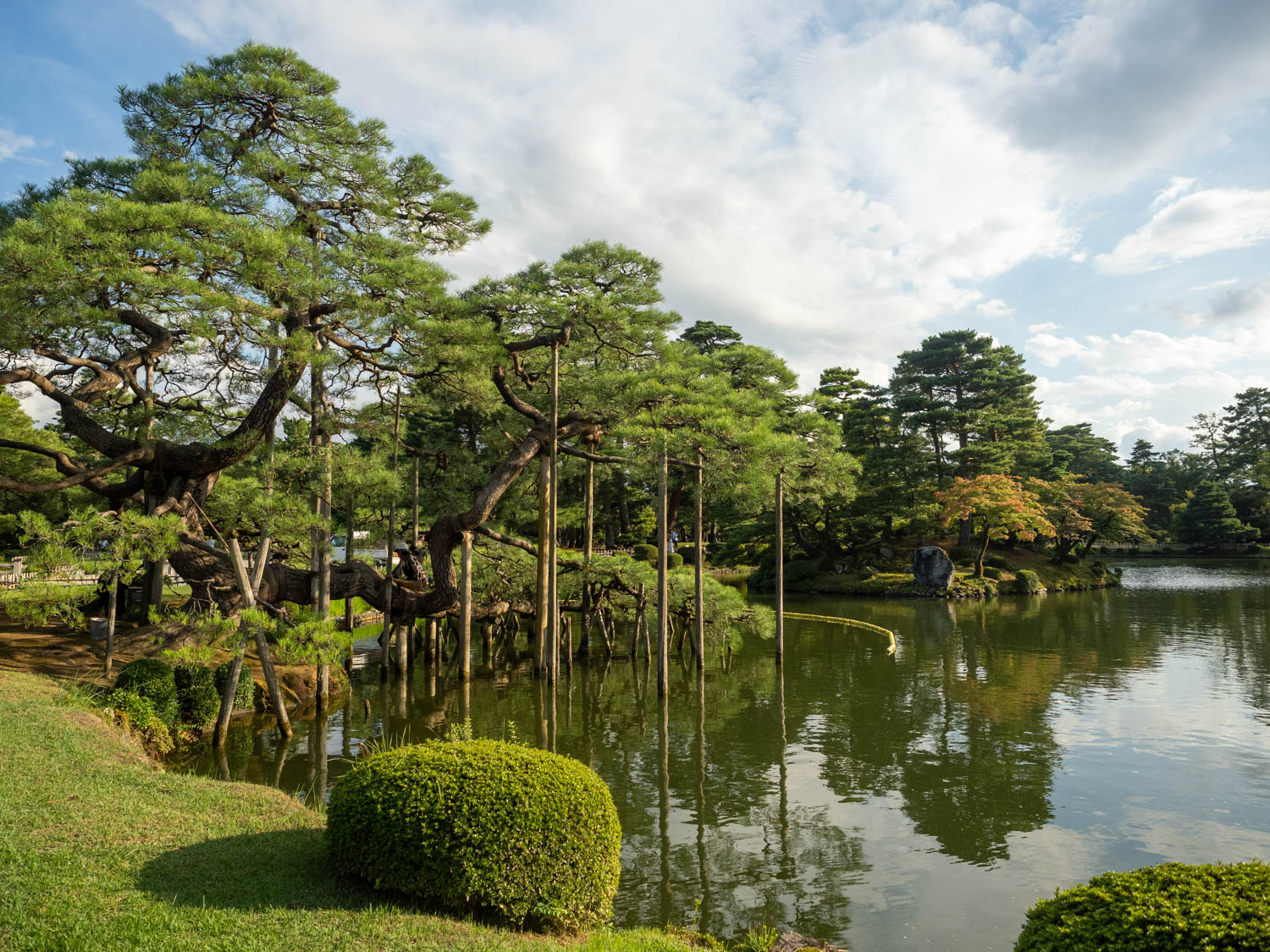
#2 Higashi Chaya District
The Higashi Chaya District, one in every of Kanazawa’s most enchanting and traditionally vital areas, it’s a traditional instance of a conventional chaya (teahouse) district in Japan. This space, gives a glimpse into the Edo interval’s cultural richness and the distinctive architectural type of chaya, the place Geisha entertained friends with dances, music, and dialog.
Strolling by its atmospheric streets, you’re transported again in time, amidst wooden-latticed buildings and stone-paved pathways, making it a first-rate location for capturing the essence of conventional Japan.
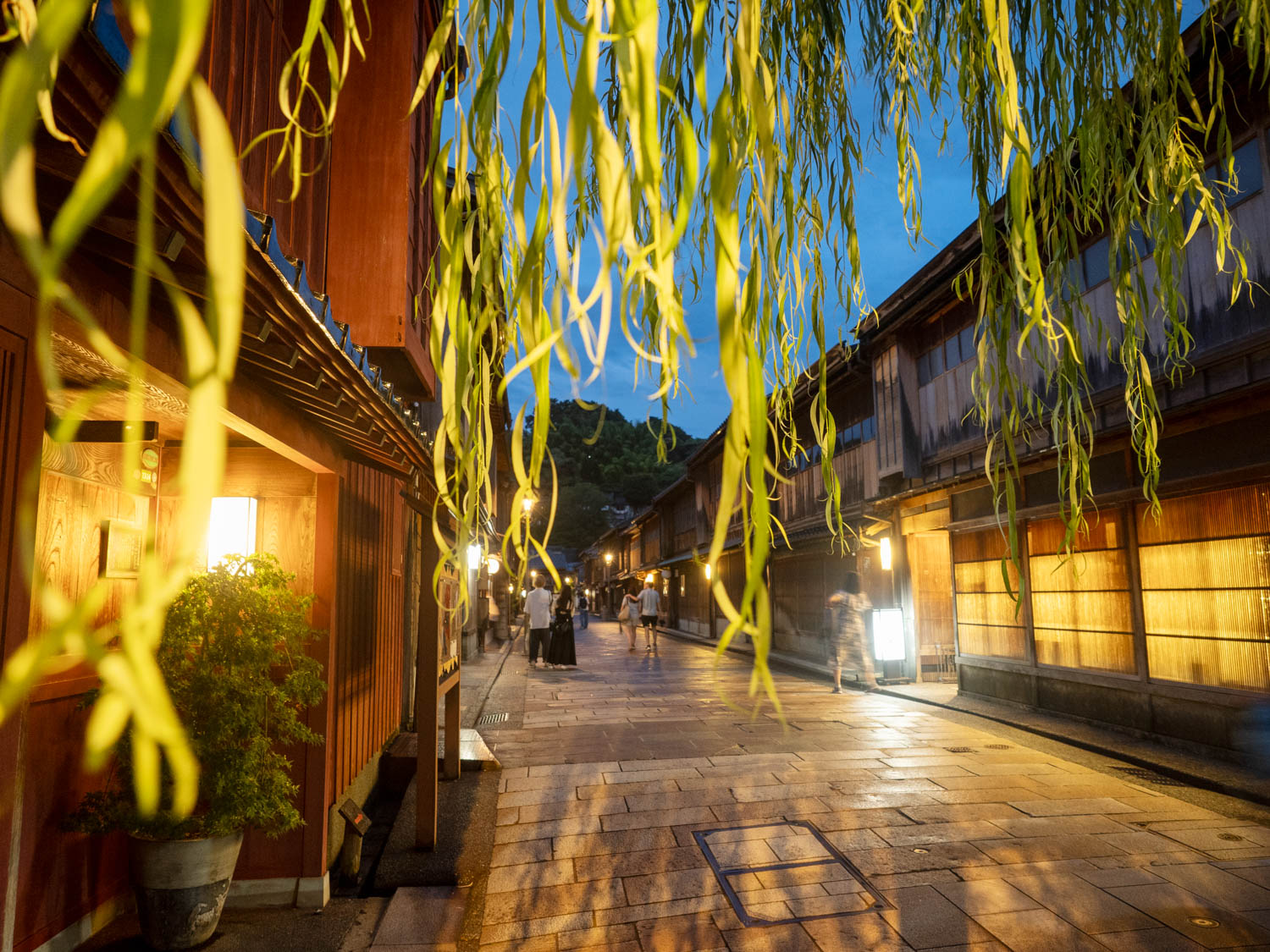
Highlights of the Higashi Chaya District:
Utasu Shrine: Tucked away within the Higashi Chaya District (reverse essentially the most scrumptious, fluffy pancake café!), Utasu Shrine is a lesser-known gem that gives a quiet respite from the busier streets. This Shinto shrine, although small in measurement, is wealthy in historical past and spirituality, identified for its water deity and believed to bless guests with interior purification and therapeutic. The shrine’s tranquil atmosphere, coupled with its conventional torii gate and luxurious environment, gives a serene backdrop for pictures, there’s additionally a sneaky Ninja hiding beneath it, go and see if you could find it!
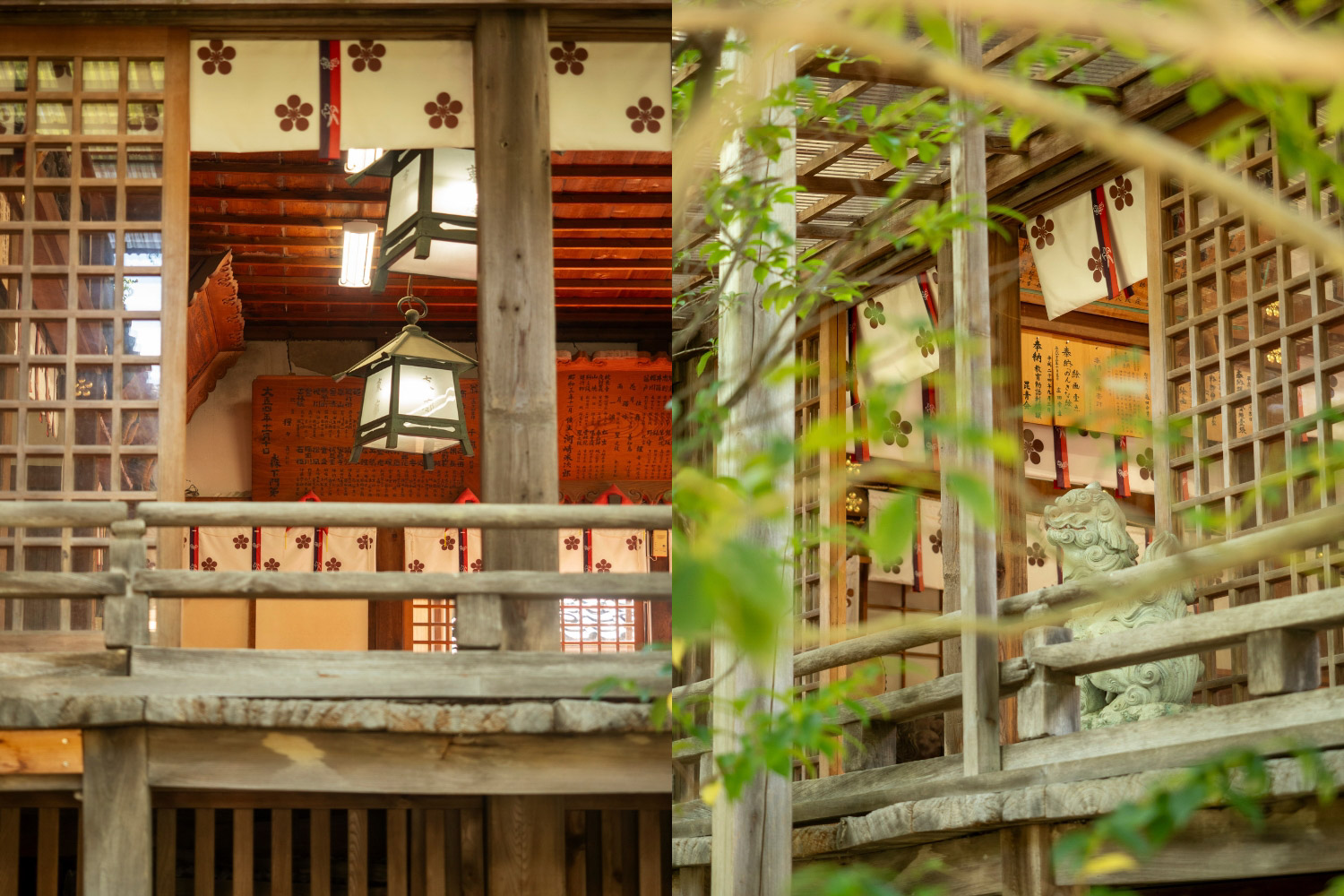
Chaya Streets: The principle streets of Higashi Chaya District are lined with fantastically preserved chaya homes. These buildings, with their distinctive picket lattices, are usually not simply architectural marvels but in addition function the right topics for pictures, capturing the district’s historic appeal. You’ll discover it greatest to discover and easily wander along with your digicam, doing so at dawn, after which once more within the night will can help you take in this space and all of its glory…the dimly lit night is one thing actually particular!
Kaikaro Tea Home: One other notable pictures spot is the Kaikaro Tea Home, which blends conventional structure with modern artwork installations. Guests can get pleasure from tea in an atmosphere that captures the cultural fusion attribute of modern-day Kanazawa.
*Only a notice on privateness on this space, just like Kyoto’s Gion District, it’s vital to respect the privateness of those that dwell within the district. Keep away from taking images of individuals with out their permission and be conscious of personal property, or lingering/posing in entrance of properties.
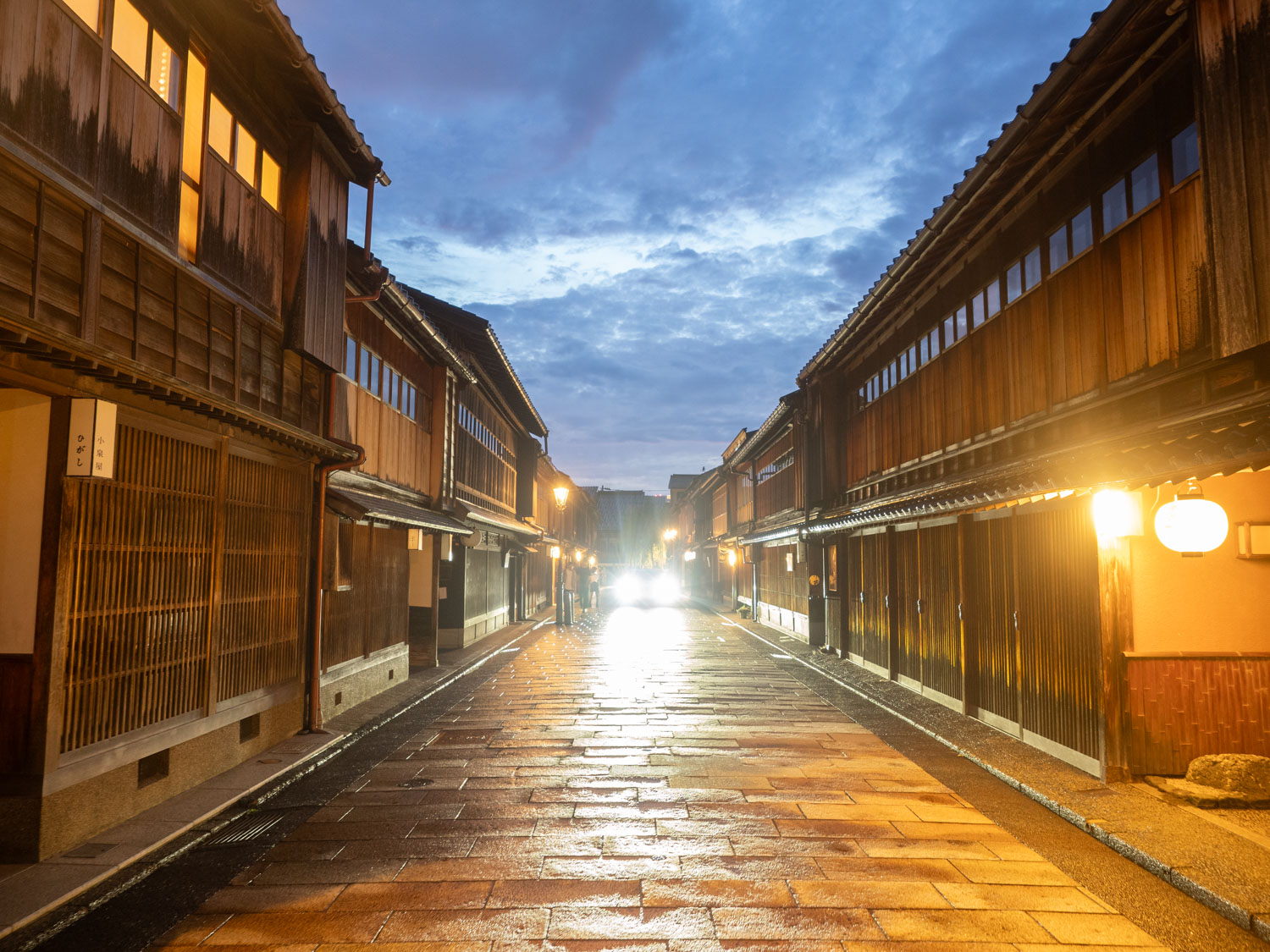
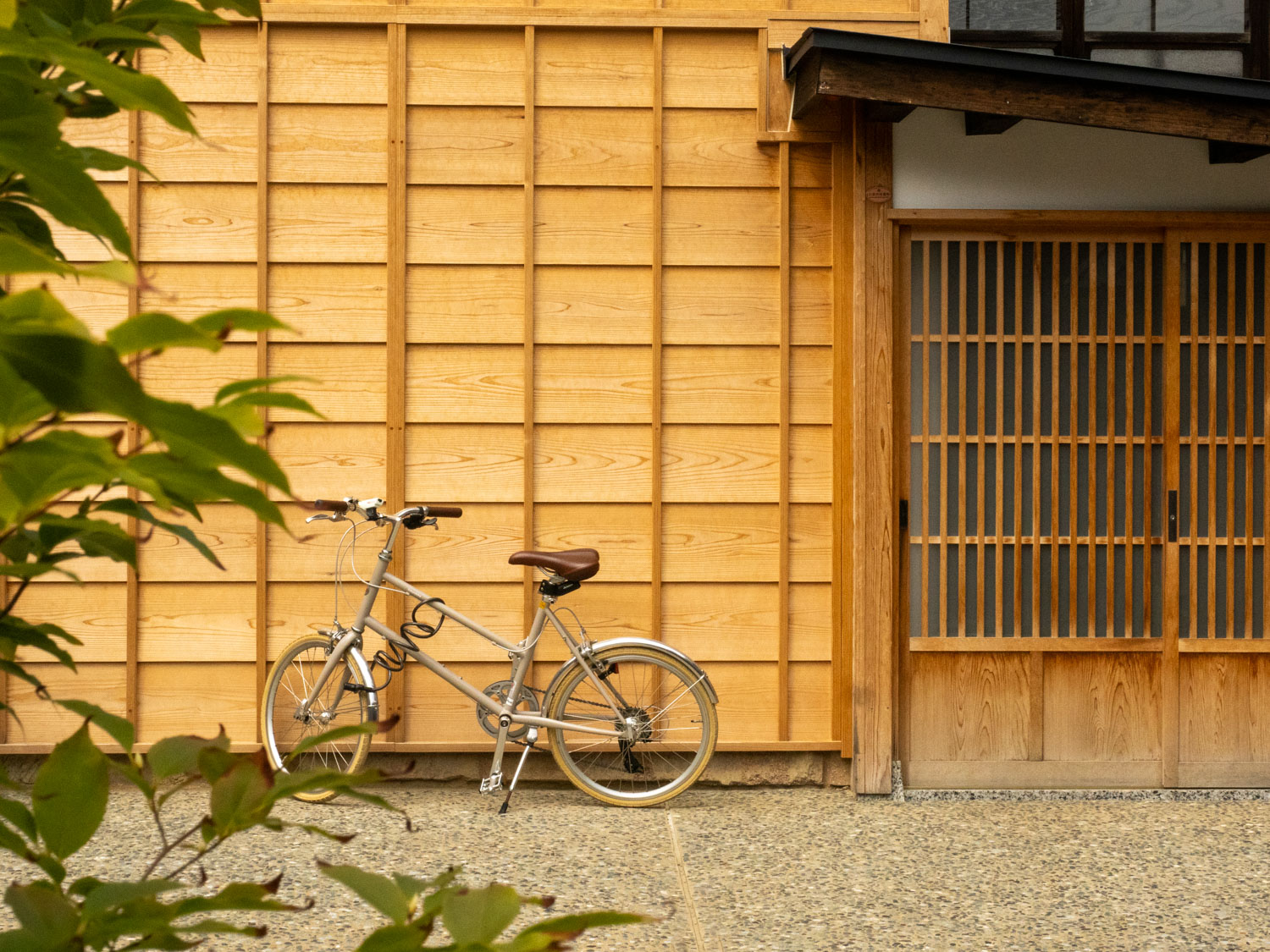
#3 Kanazawa Fort Park
Kanazawa Fort Park, with its expansive grounds and historic buildings, gives a panoramic view of Japan’s feudal previous and its architectural grandeur. The citadel, initially constructed within the late sixteenth century and reconstructed over time, and it’s white lead-tiled roofs shimmer within the daylight, making a hanging distinction in opposition to the encircling greenery and the deep blue sky, if you happen to’re fortunate!
Highlights and Pictures Areas inside Kanazawa Fort Park
Ishikawa-mon Gate: The gate, a chosen Essential Cultural Property, is an iconic image of Kanazawa Fort. Its imposing construction and conventional design make it a well-liked pictures spot, particularly when framed by the cherry blossoms in spring or the fiery maple leaves in autumn. That is the gate you’ll enter from if present Kenrokuen Backyard, a gorgeous transition of scenes and pictures alternatives.
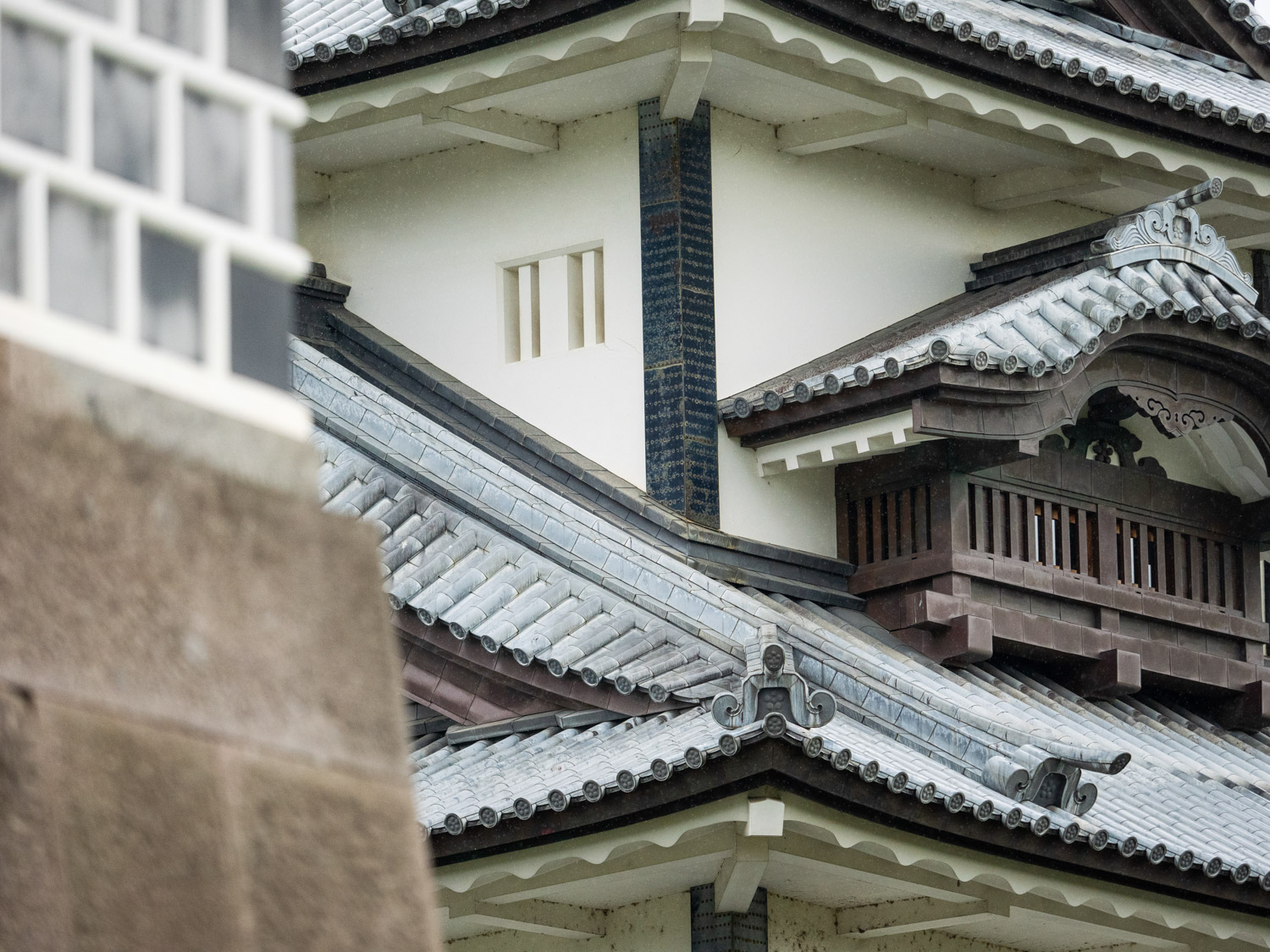
Gojikken Nagaya Storehouse: This lengthy storehouse, with its white plaster partitions and conventional tiled roof, stretches alongside the citadel’s northern boundary. Its size and the best way it harmoniously blends with the pure panorama supply compelling views for images, capturing the essence of feudal structure.
Hashizume-mon Gate: Right here, you’ll discover a gorgeous picket bridge crossing the citadel moat, one in every of my pictures highlights of Kanazawa. You need to use foliage alongside the hedge to seize pictures of the partitions, picket bridge and water, or look ahead to sundown and get the solar glowing because it units behind the citadel.
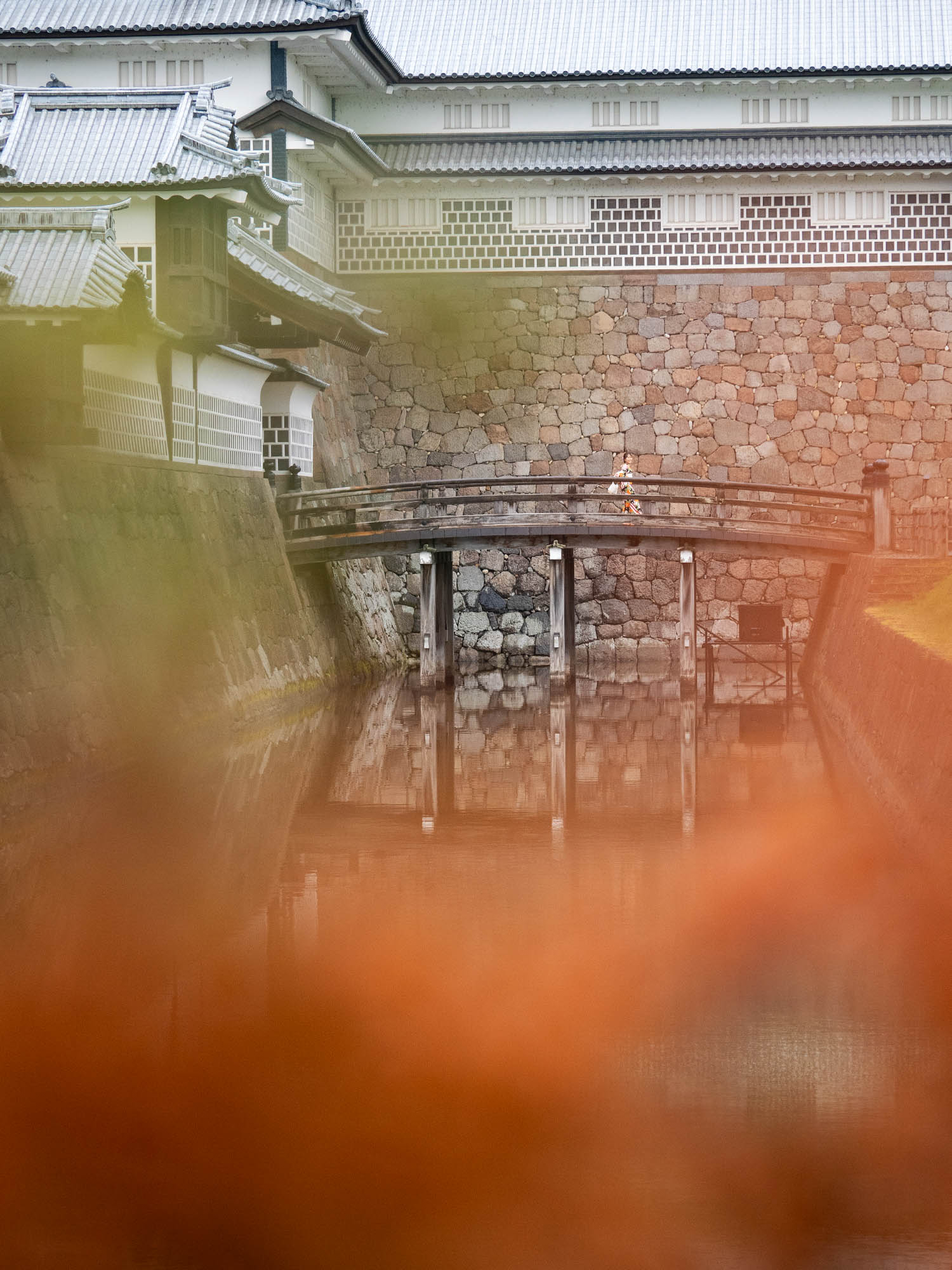
Gyokusen’inmaru Backyard: Situated throughout the citadel grounds, this fantastically landscaped backyard is a comparatively current addition, designed to emulate the normal strolling gardens of samurai residences. With its picturesque pond, stone lanterns, and punctiliously organized flora, Gyokusen’inmaru gives serene settings for pictures, particularly throughout the golden hours of dawn and sundown.
Hishi Yagura Turret and Hashizume-mon Tsuzuki Yagura: These reconstructed turrets and connecting partitions are prime examples of the citadel’s defensive buildings. Climbing to the highest of those turrets gives a vantage level for capturing the sprawling citadel grounds, the fashionable cityscape of Kanazawa, and the distant mountains.
*Additionally simply to notice, watch out to test closing instances earlier than getting into the backyard, as they’ll shut the gates and the instances change all year long, I’ll have been seen dashing throughout the grounds with simply 5minutes left earlier than closing as a result of I bought carried away taking images!
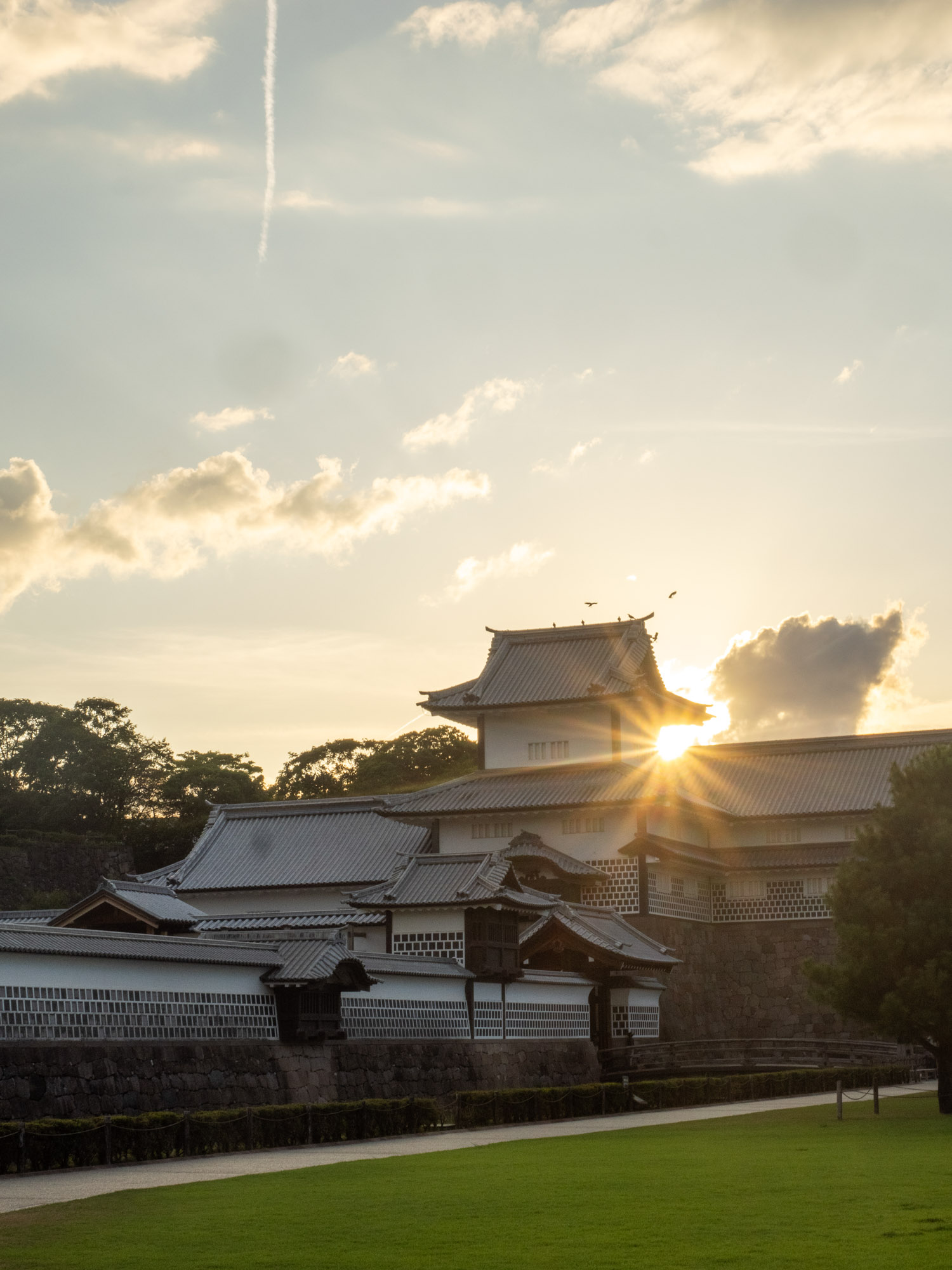
#4 Nagamachi Samuari District
This space, the place samurai and their households as soon as lived, is thought for its well-preserved mud partitions and conventional samurai residences. It gives a novel perspective on town’s historical past and tradition, with the Nomura Samurai Home being a spotlight and maybe my favorite place to {photograph} in all of Kanazawa.
The Nomura household, serving below the Maeda lords, who dominated the Kaga Area (present-day Ishikawa and Toyama prefectures), have been among the many elite samurai class. Following the Meiji Restoration in 1868, which led to the abolition of the samurai class, the Nomura household confronted monetary difficulties and ultimately misplaced their esteemed standing. The home was opened to the general public to protect and share the samurai heritage with future generations.
The Nomura Samurai Home is famend for its architectural magnificence and the serene backyard it overlooks. The home options fantastically preserved rooms that show the approach to life and artifacts of the samurai period, together with intricate armour, weapons, calligraphy, and conventional furnishings. The inside displays the samurai’s philosophical pursuits, with a Zen-like simplicity and a deep connection to nature evident in each facet of its design.
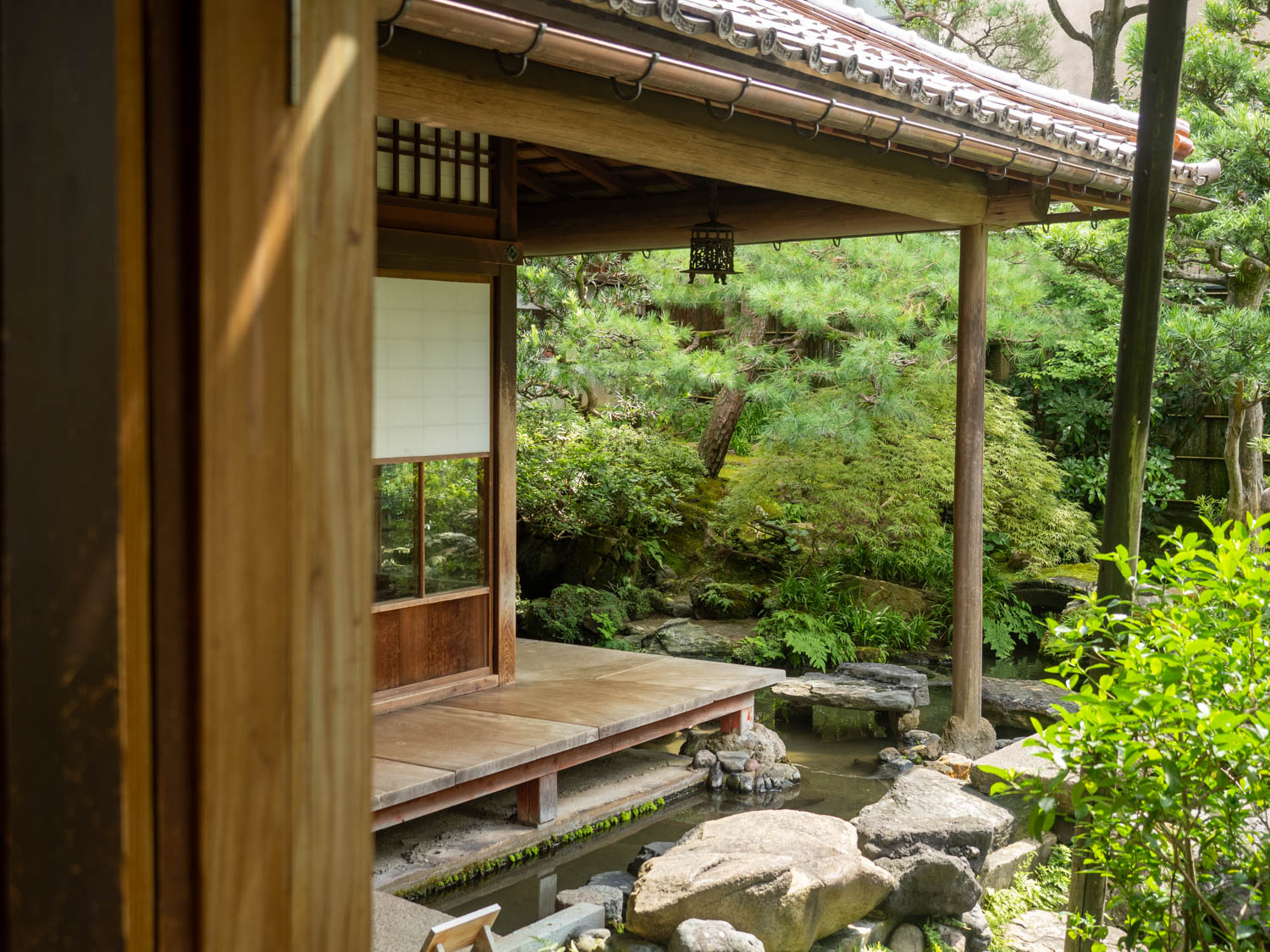
One of many home’s most fascinating options is its small however beautiful backyard, which is taken into account a masterpiece of Japanese panorama gardening. Comprising rigorously chosen stones, water options, and meticulously pruned timber and shrubs, the backyard embodies the Japanese aesthetic of wabi-sabi, which finds magnificence in simplicity and impermanence.
Opening Hours:
- The Nomura Samurai Home is open to guests year-round.
- The home is accessible from 8:30 AM to five:30 PM (March to October) and from 8:30 AM to 4:30 PM (November to February).
Admission Charges:
- Entry to the Nomura Samurai Home prices 550 yen for adults and 400 yen for kids, providing a helpful alternative to discover the legacy of the samurai in Kanazawa.
*Additionally, attempt to plan your go to when it’s not very crowded to get pleasure from this lovely area in peace, and have the time to seize a group of pictures with out crowds.
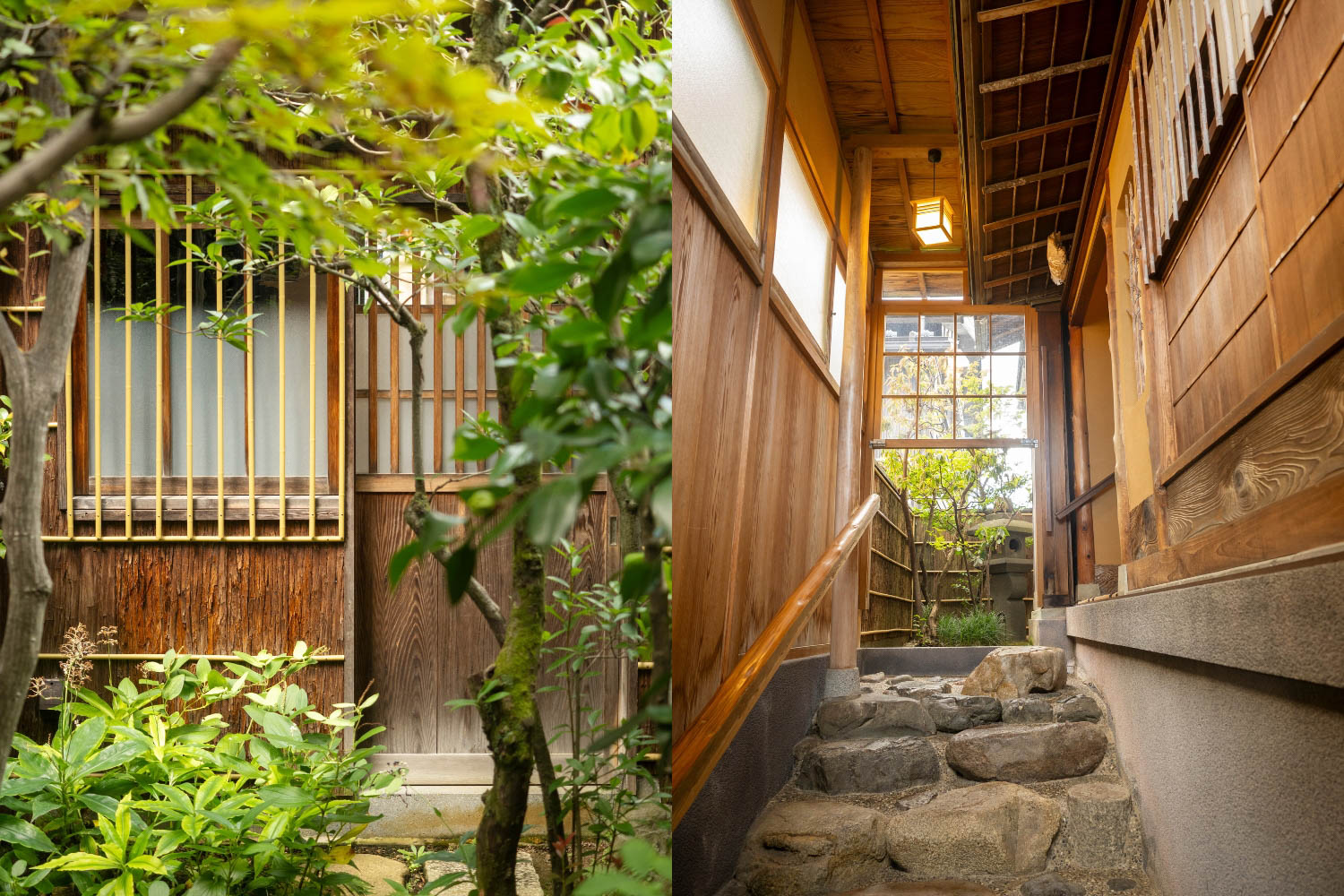
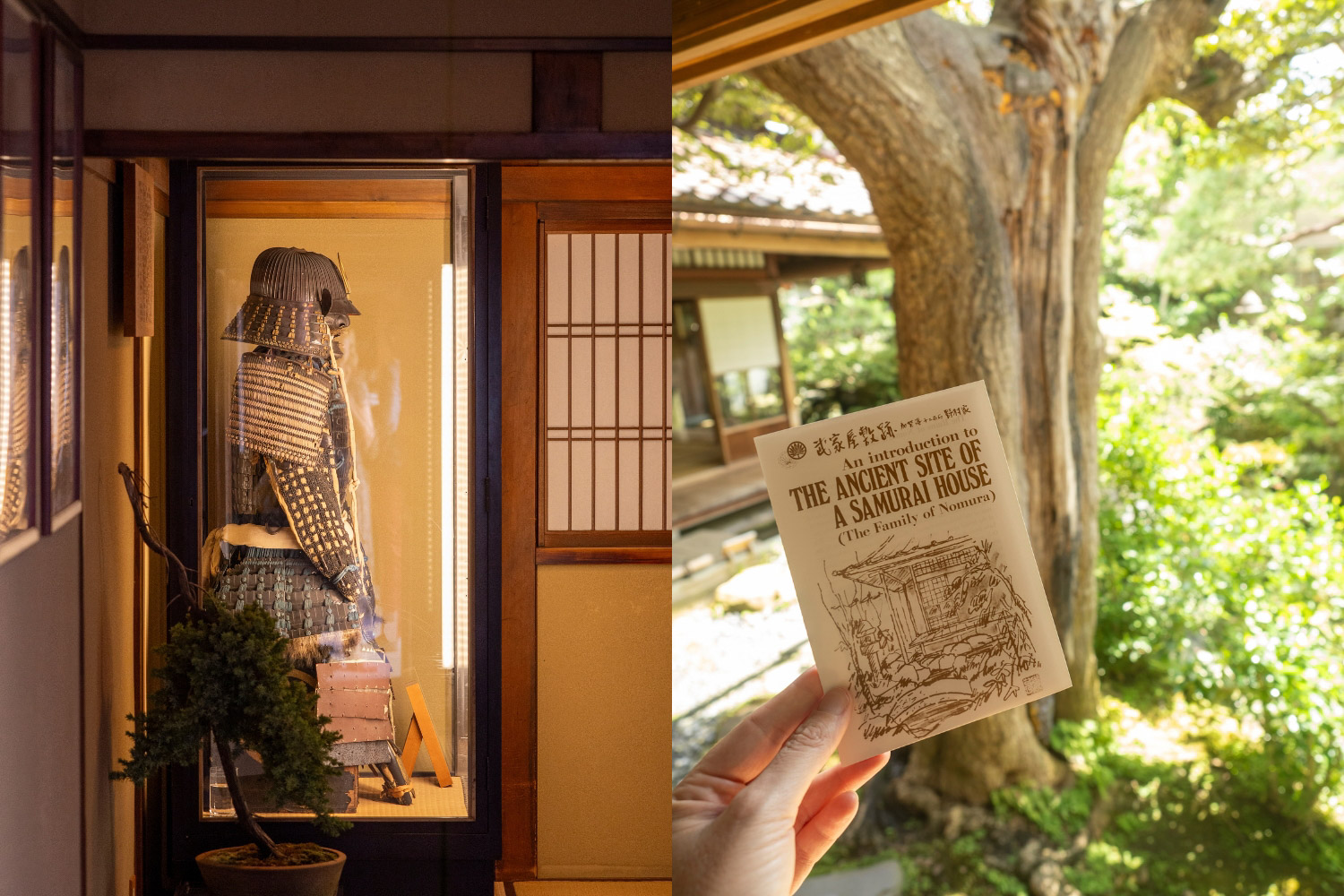
#5 Asanogawa River
The Asanogawa River, one of many two rivers that gracefully stream by Kanazawa, gives a picturesque setting that captivates photographers and nature lovers alike, notably if you happen to’re pairing it with a go to to the Higashi Chaya District.
Alongside the river simply west of the Asanogawa Bridge, you’ll discover Kazuemachi Chaya District, with conventional machiya (townhouses) lining the water’s edge, showcasing the harmonious mix of Kanazawa’s historic appeal and pure magnificence.
Every season transforms the river right into a distinctly totally different panorama (I’m joyful to go to in a number of seasons!). Spring brings cherry blossoms that delicately body the riverbanks, summer time gives lush greenery, autumn reveals a tapestry of fiery colours, and winter covers the scene in a serene blanket of snow, every offering distinctive compositions and moods for photographers because the skyline and buildings are additionally reworked.
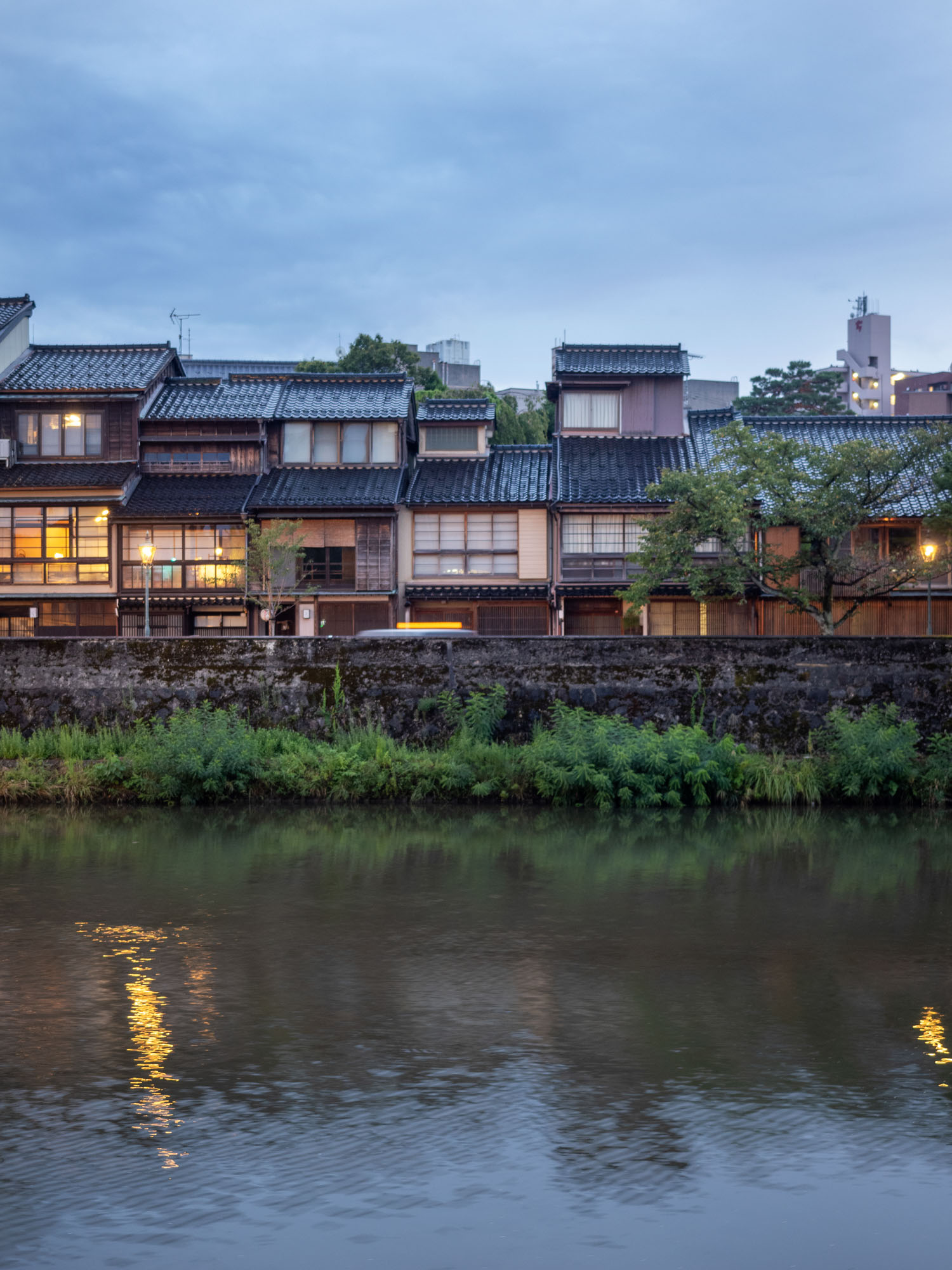
Historic Bridges and Structure: The river is flanked by a number of bridges, every with its personal historical past and character. The Asanogawa Ohashi, particularly, is a favourite spot for capturing the distinction between the flowing river and the static great thing about Kanazawa’s conventional buildings.
Golden Hour and Blue Hour: The golden hour brings a heat glow to the river, very best for capturing smooth, illuminated scenes, whereas the blue hour gives a cool distinction, highlighting the lights of town and making a magical ambiance. Mild posts, dimly gentle entrances to properties and the bridges themselves, supply quite a lot of topics to work with.
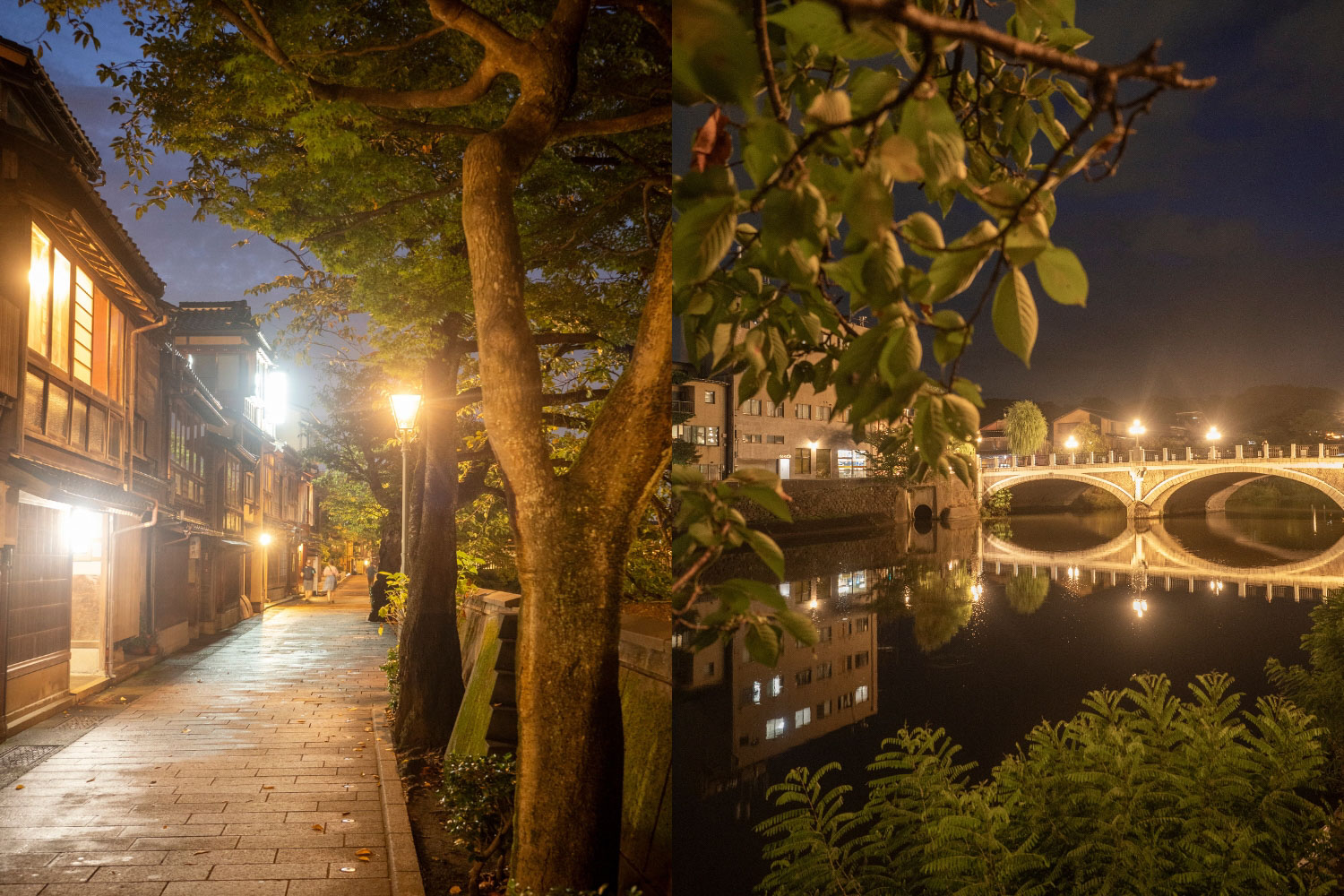
Lastly, the Omicho Market: For these curious about road pictures and capturing native life, Omicho Market, with its bustling stalls, contemporary seafood, and vibrant ambiance, is right. Early morning is the most effective time to go to to seize the power and interactions of native distributors and buyers. Sadly, I can’t embrace an excessive amount of extra in the marketplace as I solely had an opportunity to go to within the early night, when the market stalls have been closed…I might really feel it will be fairly thrilling when the motion is occurring although!
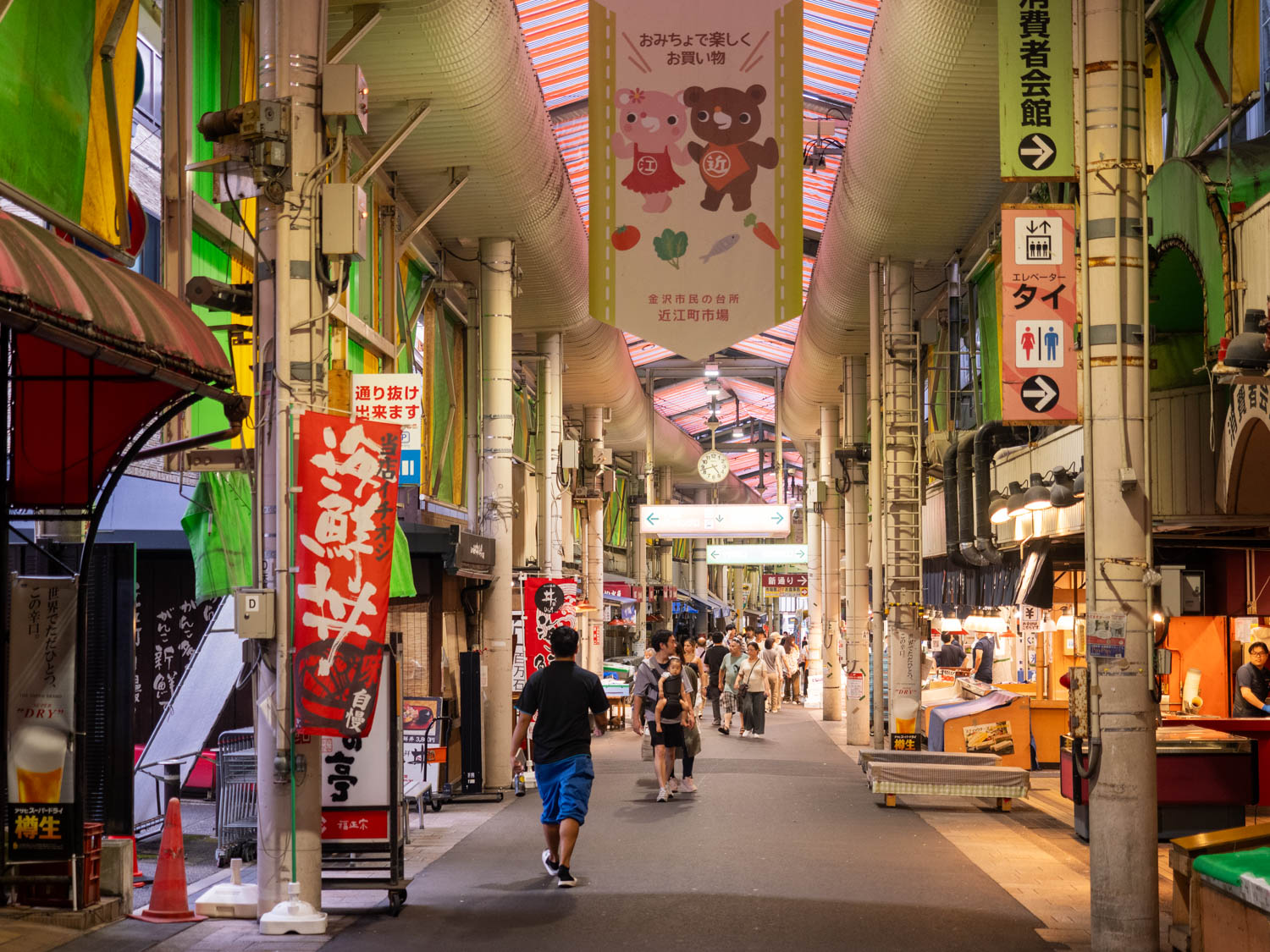
Common Journey Suggestions for Visiting Kanazawa
What’s the most effective time to go to Kanazawa?
Spring (March to Could) and autumn (September to November) are essentially the most picturesque instances to go to, with nice climate and the fantastic thing about cherry blossoms or autumn colors.
Getting round Kanazawa: The town is compact and simply explored on foot or by bicycle. For longer distances, buses and taxis are available and simple to flag down. The gap between the practice station and central space is lower than 10minutes, if you happen to don’t have a lot baggage you possibly can stroll it, or take an area bus. For these with baggage (like me!), a taxi is reasonably priced and a simple resolution.
Delicacies to eat in Kanazawa: Don’t miss attempting Kanazawa’s seafood, particularly sushi and sashimi contained in the Omicho Market, as town is thought for its contemporary catch from the Sea of Japan.
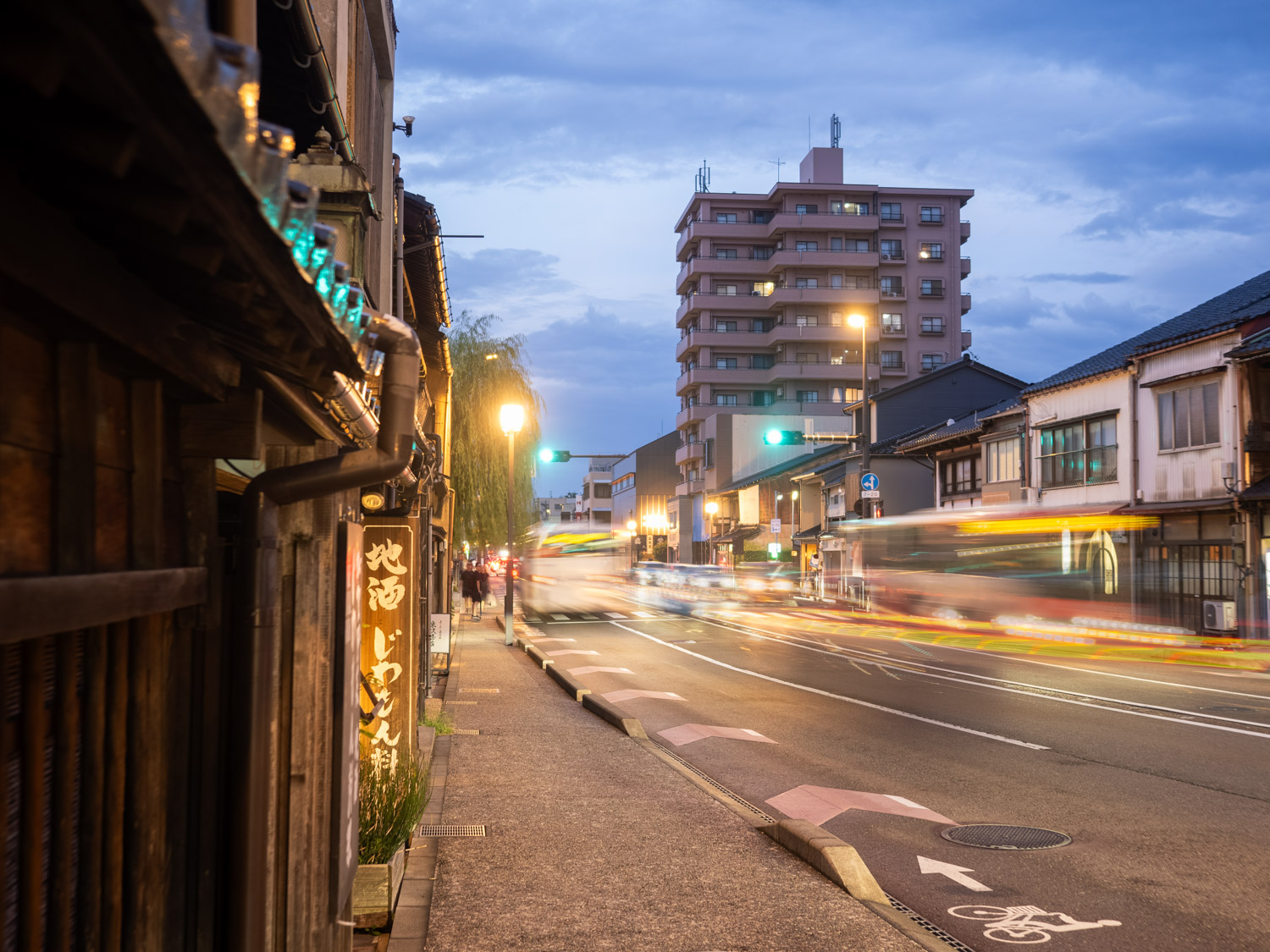
Travelling to Kanazawa by Prepare:
Should you’ve bought a JR Move, use it to achieve Kanazawa in consolation. Relying on the practice you’re taking, the journey time will differ, however I like to recommend the Hokuriki Shinkansen from Tokyo, it passes by some lovely surroundings! You need to use Kanazawa as a center cease between Tokyo and Kyoto too, making a triangle of types in your itinerary.
Attending to Kanazawa from Tokyo: Take the Hokuriku Shinkansen from Tokyo Station to Kanazawa Station. The journey takes roughly 2.5 to three hours, making it a handy choice for travellers coming from the capital.
Attending to Kanazawa from Kyoto: Take the Restricted Specific Thunderbird practice from Kyoto Station to Kanazawa Station. The journey time is about 2 hours and 20 minutes.
PS – If travelling by practice, don’t neglect to choose up snacks and a bento field…it’s all a part of the expertise and also you’ll see when you’re on board, everybody does it!
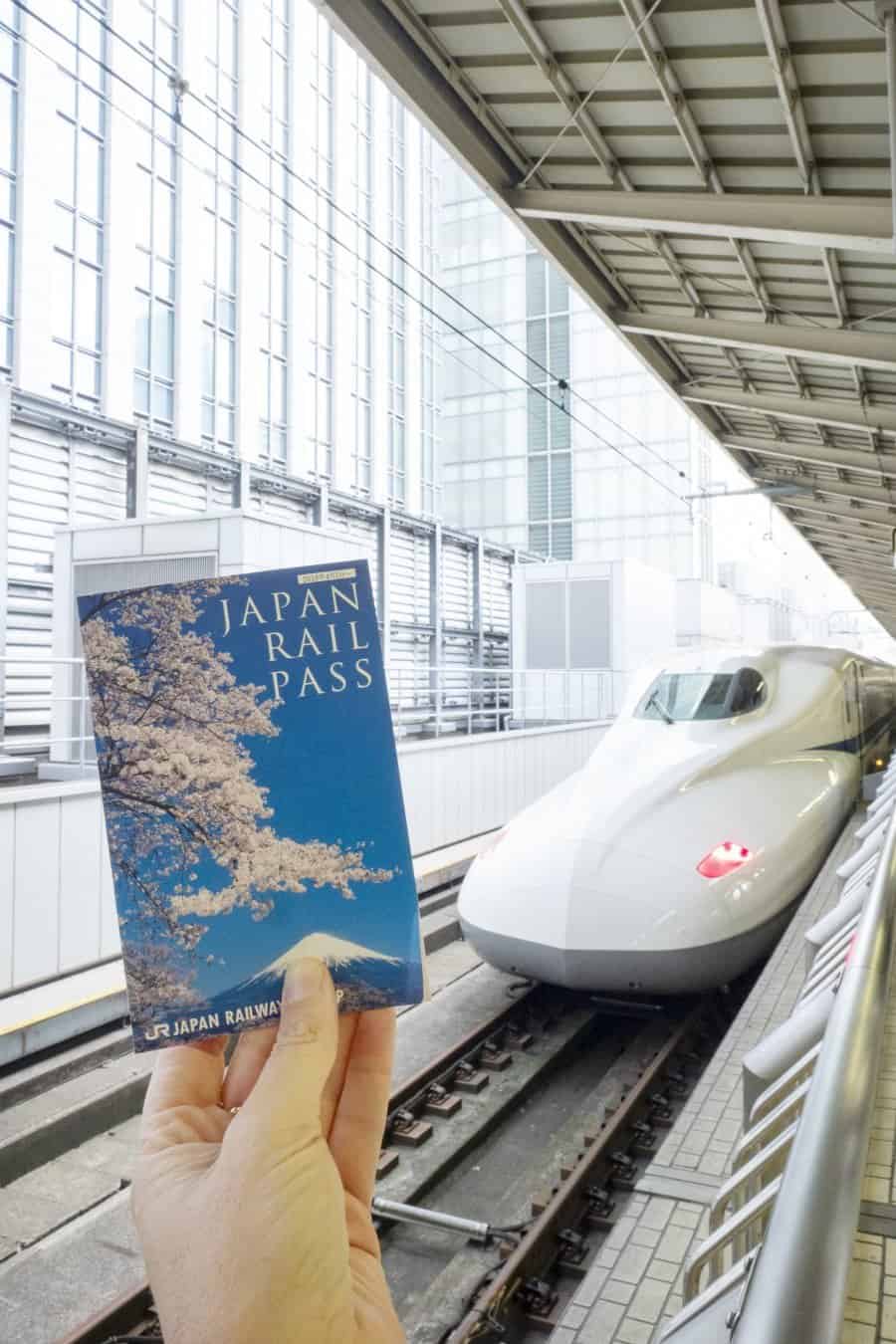
The place to Keep in Kanazawa
My base for the go to was on the central, new and really, very snug Soki Kanazawa. It felt like a luxurious spa resort for the value of an ordinary room…I extremely advocate staying right here when photographing Kanazawa.
We opted for the Deluxe Twin room to make sure there was sufficient room for suitcases, nevertheless there was greater than sufficient area, the toilet was lovely, there have been robes and slippers included, plus little extras!
Additionally, ending a day of photographing with a cease by Lawson or Household Mart to choose up a mini banquet dinner, then dine in our room whereas saving and modifying pictures was essentially the most enjoyable factor! Should you’ve been to Japan, you’ll know what I imply by this…combini (grocery store) dinners are the most effective.
Your map of Kanazawa Pictures Areas –
click on and it’ll open in Google Maps
Proceed studying about Japan with The Wandering Lens:
A Photographer’s Information to Tokyo
A Information to the Greatest Pictures Areas in Kyoto
Views: Photographing Arashiyama’s Bamboo Grove
Views: Pictures ideas for visiting Fushimi Inari
Behind the Lens: Photographing a Sumo Match in Tokyo
Should you’re eager to enhance your pictures, take The Wandering Lens ‘3 Week Composition Reset Course‘ to refresh your method to pictures and be taught new artistic composition strategies.
You’ll additionally discover The Freelance Journey Photographer Course out there to begin at any time on-line, so you’ll be able to be taught at your individual tempo and start exploring the world of freelance pictures.
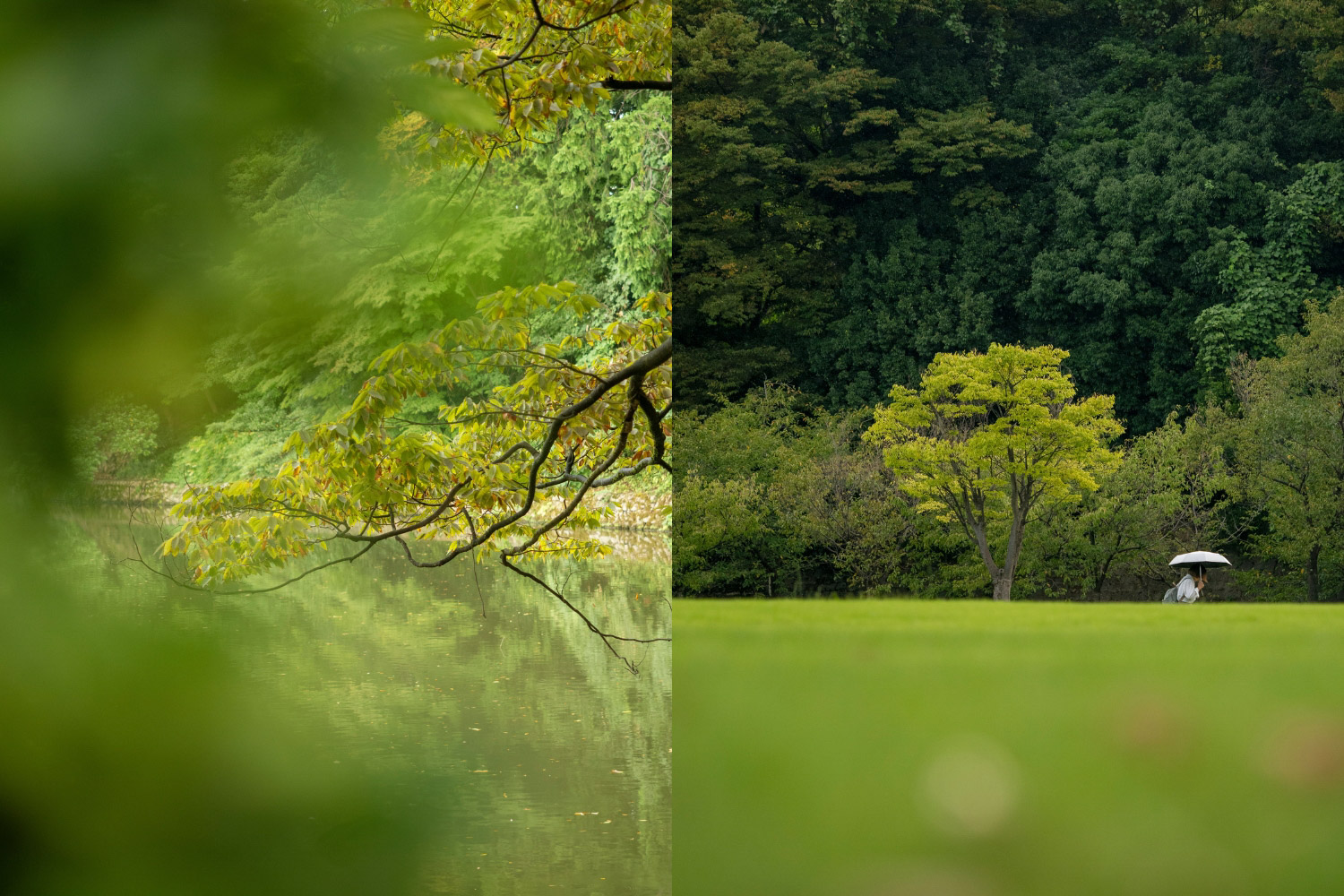
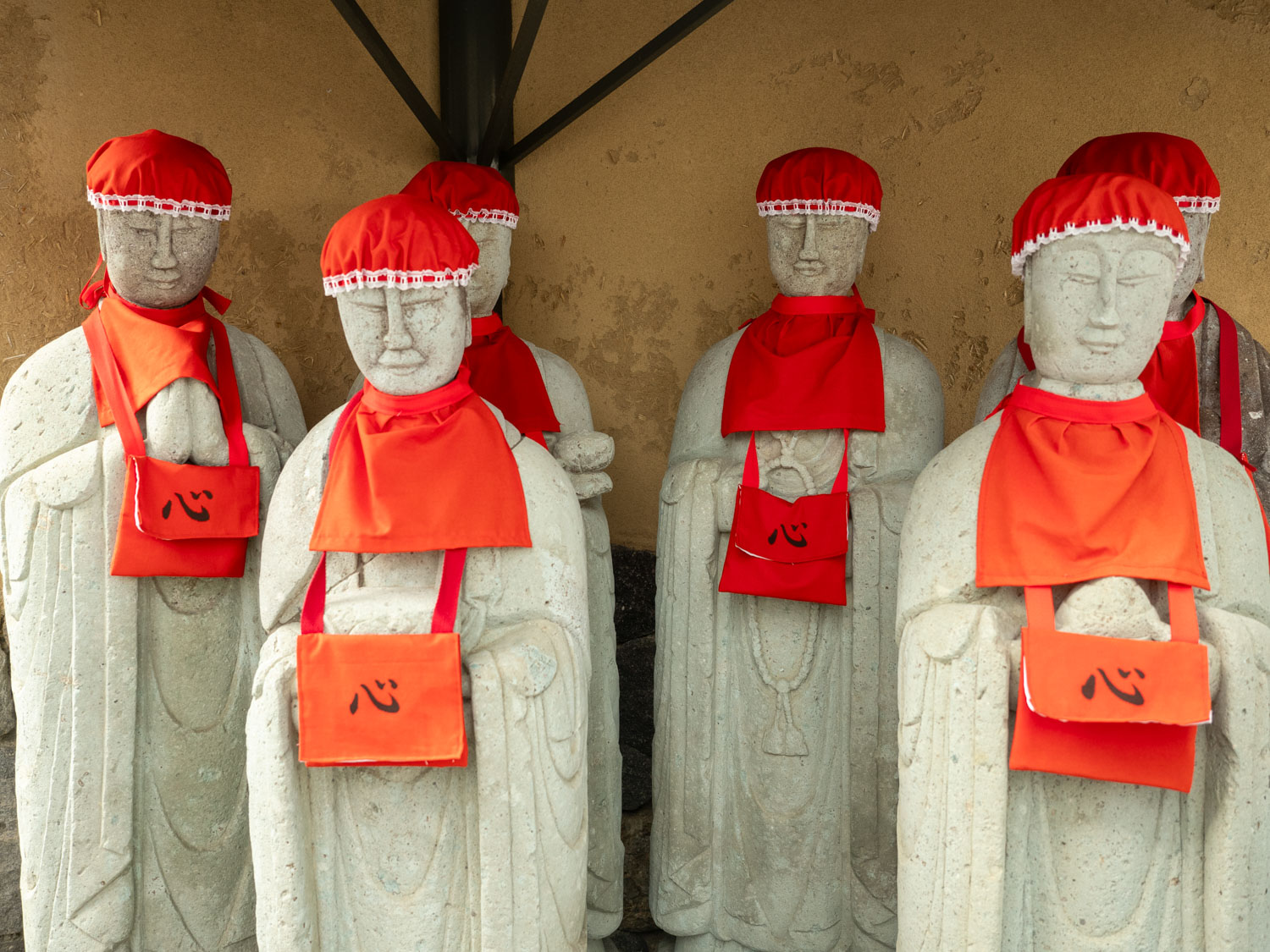
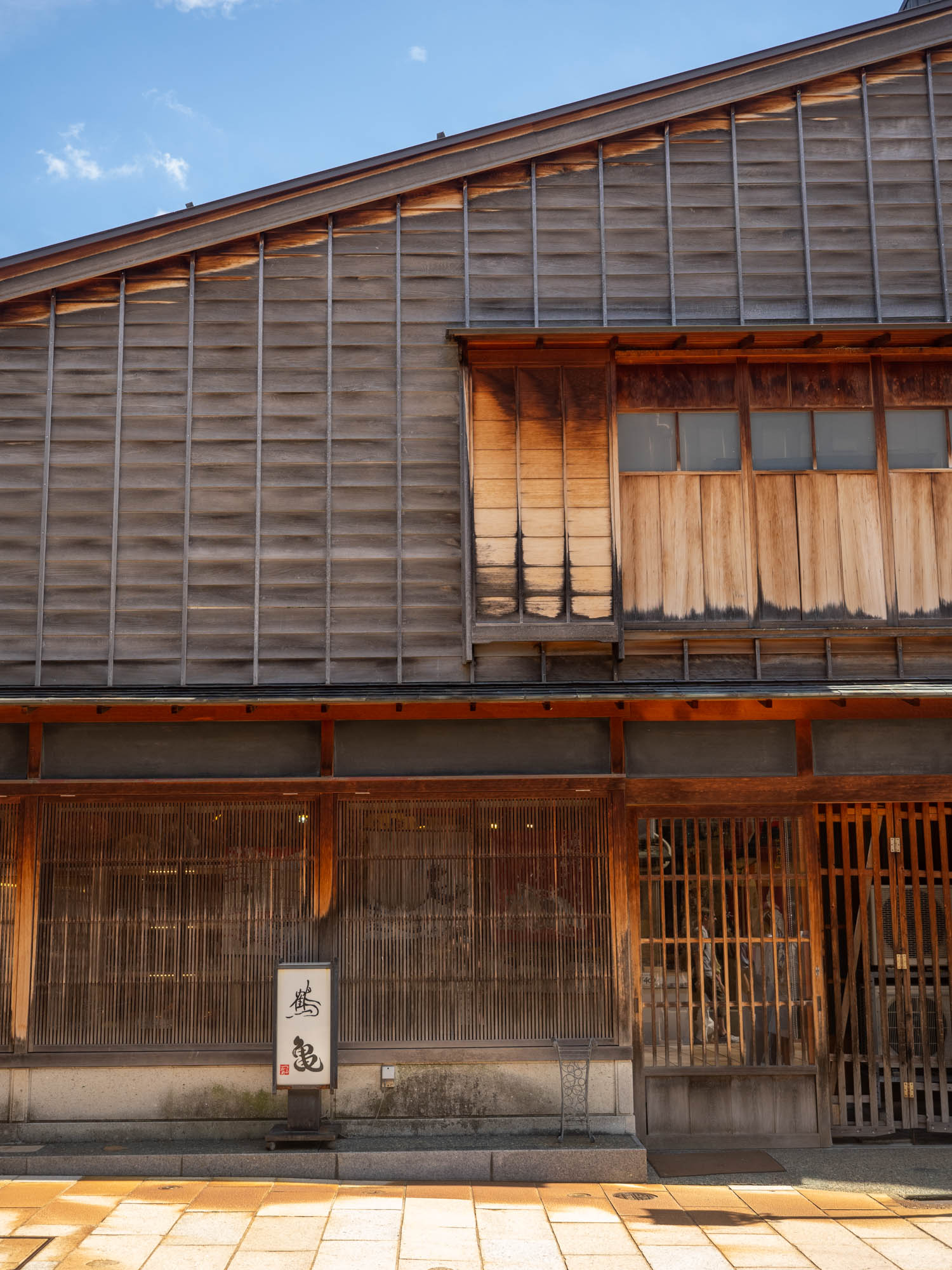
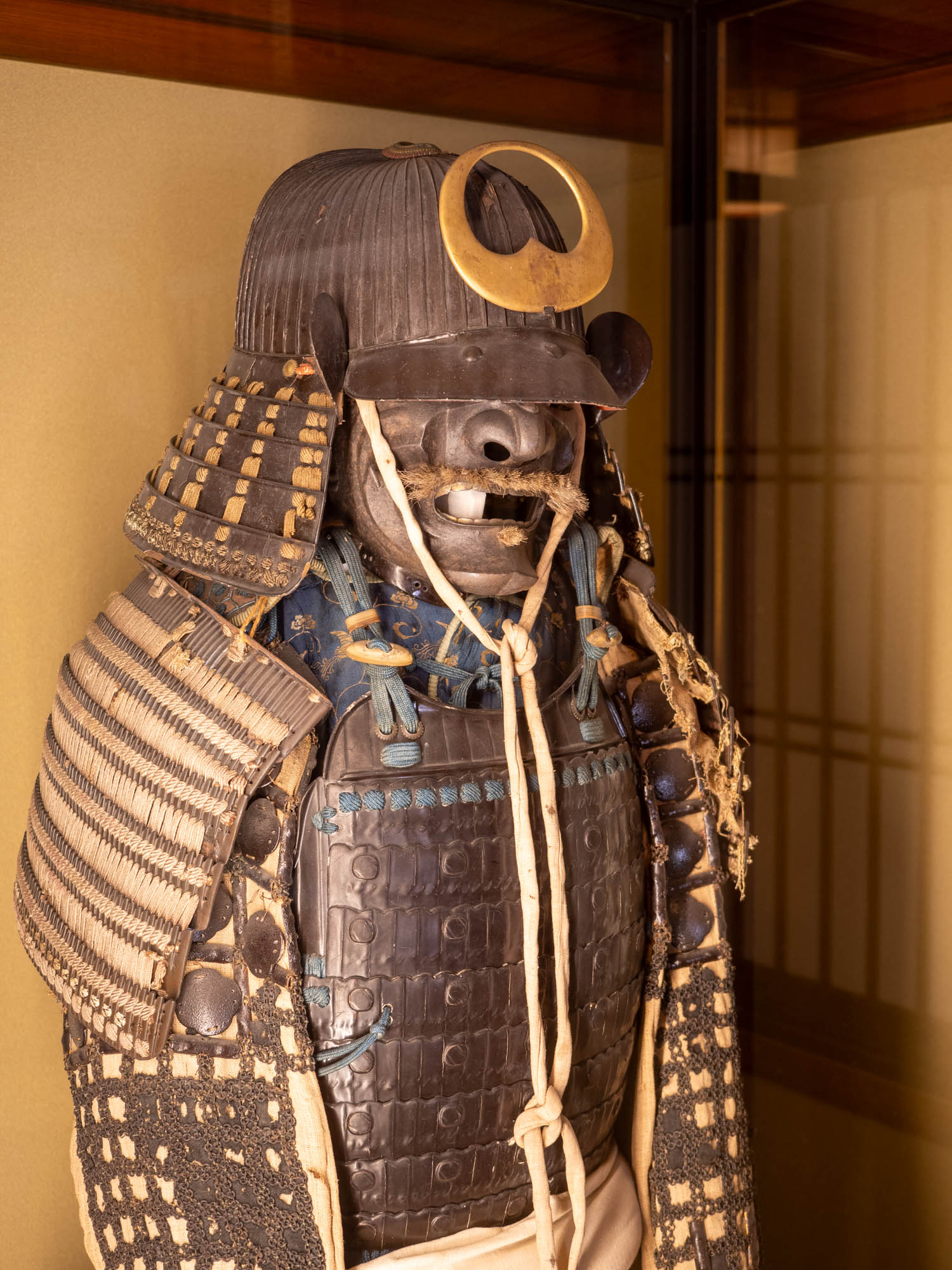
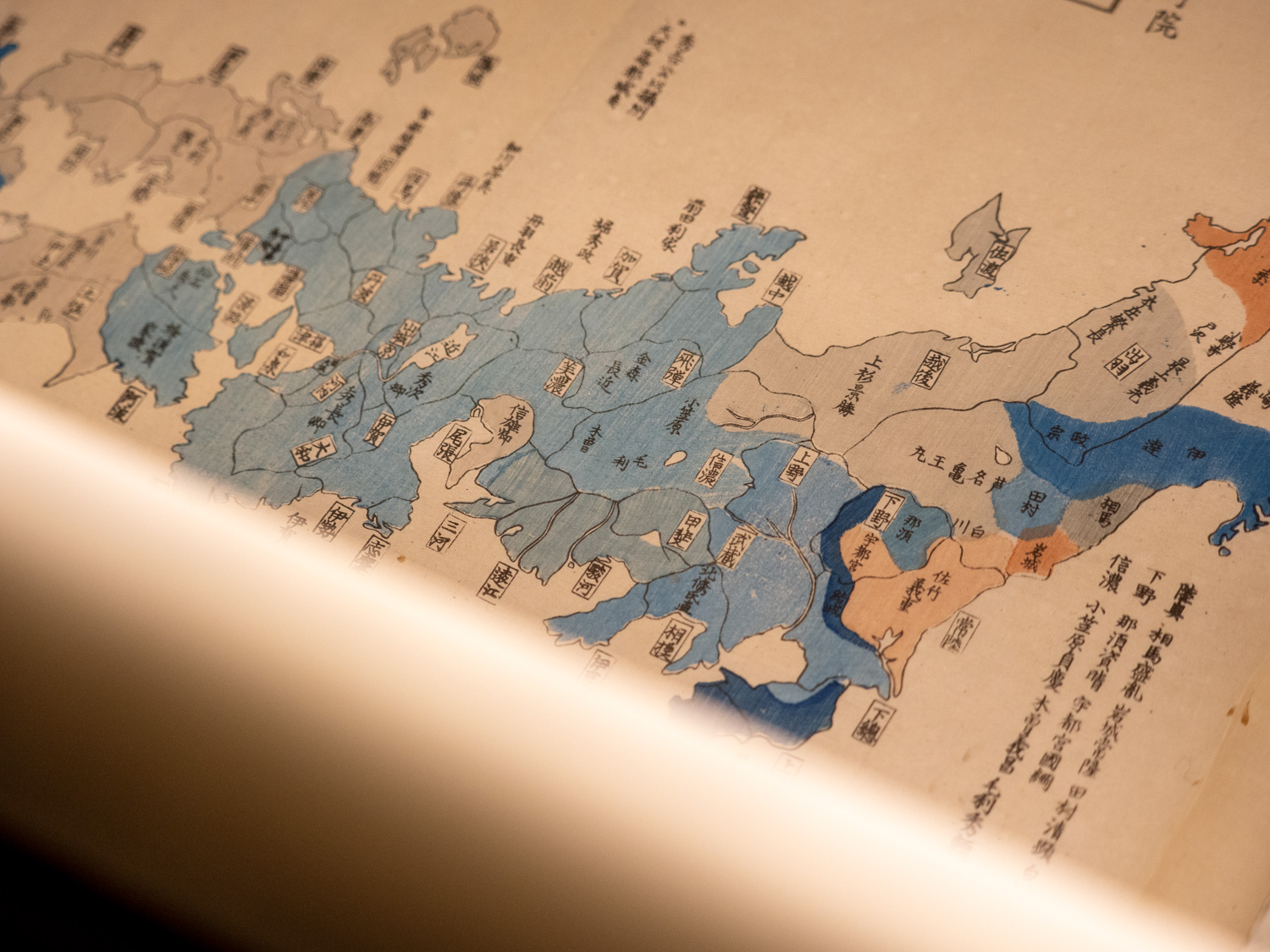
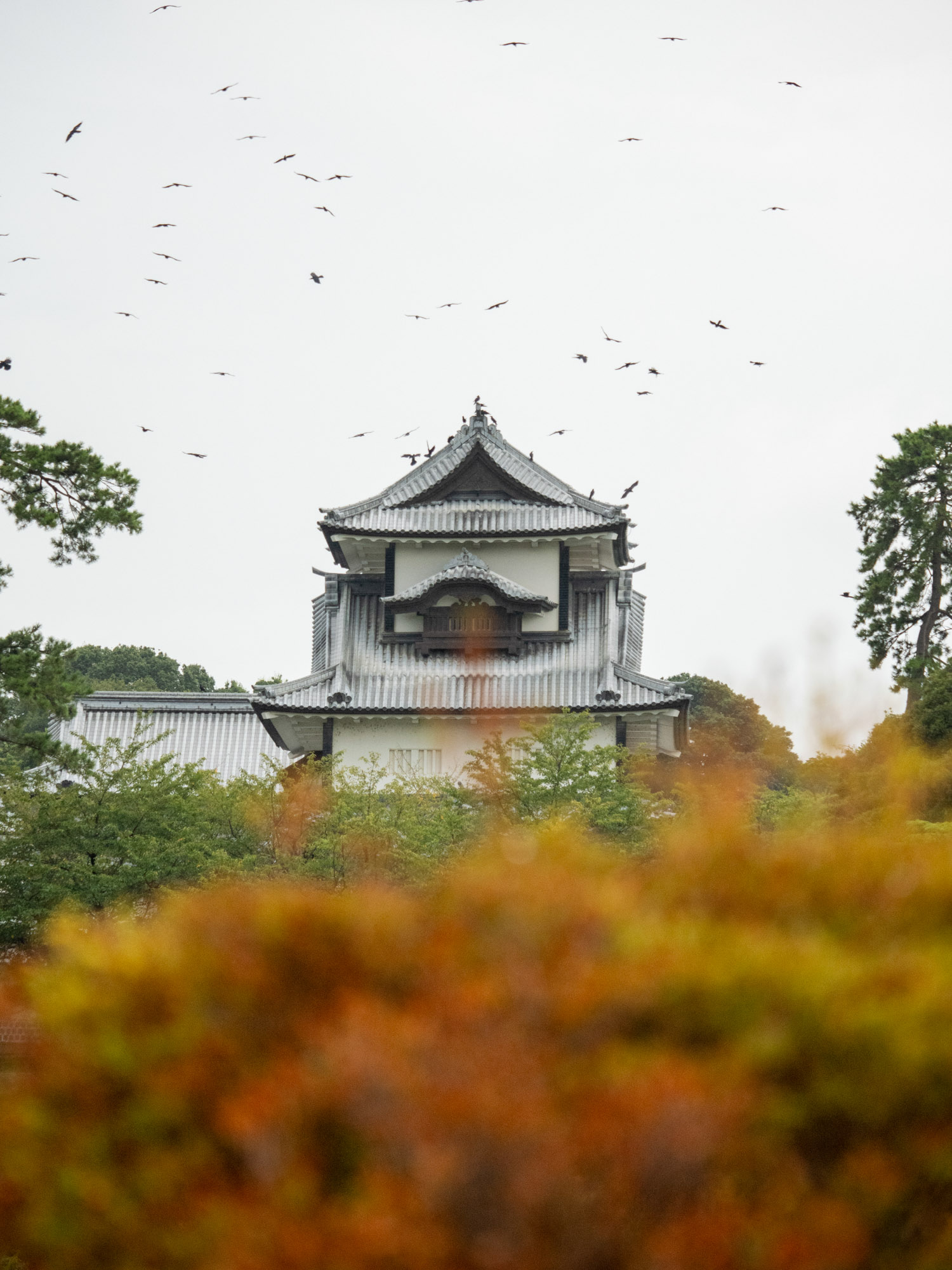
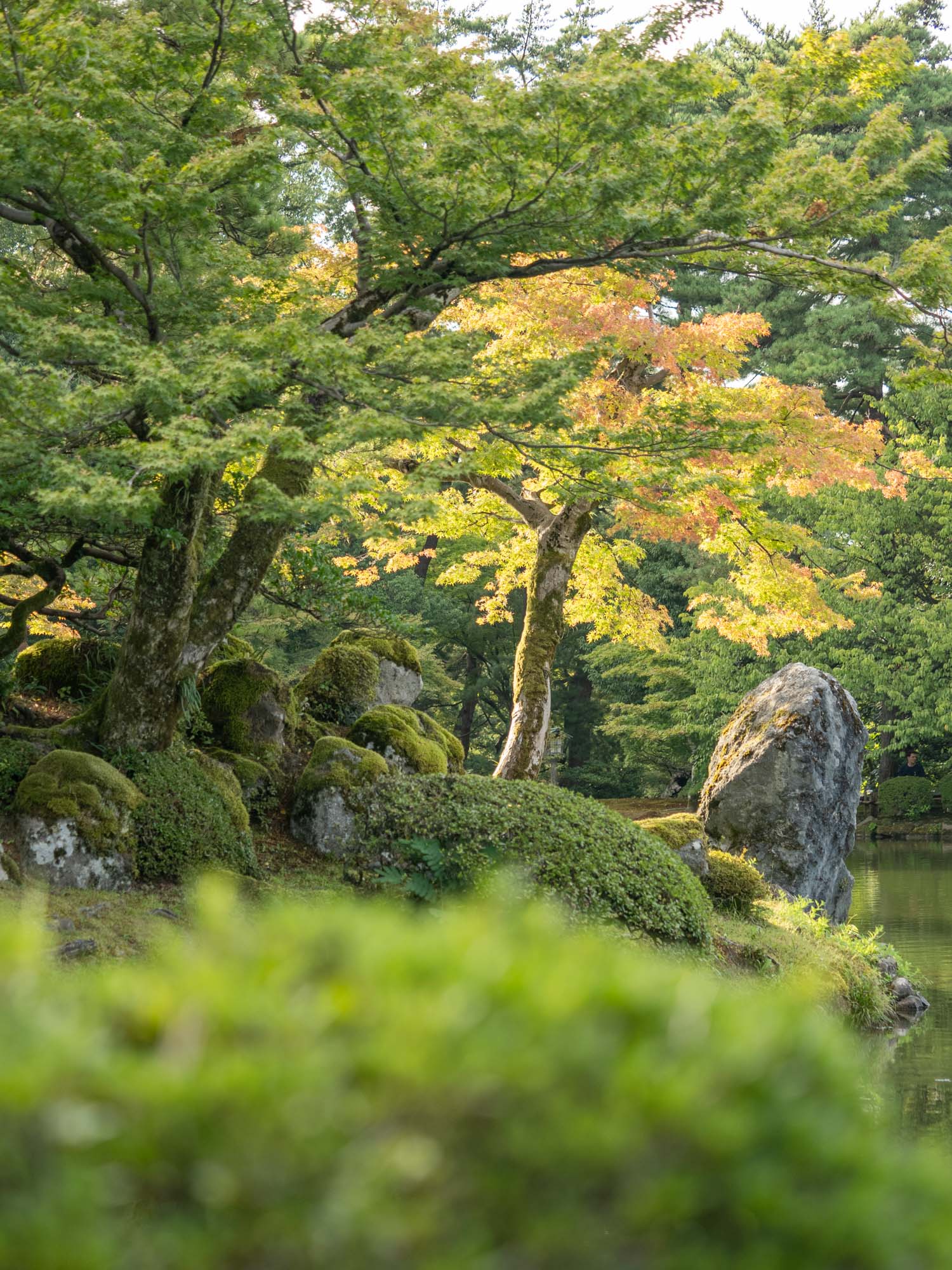

Howdy! I’m the founder and photographer behind The Wandering Lens.
With 17+yrs expertise as an expert journey and panorama photographer, all recommendation discovered on this website is from my private expertise on the highway. I hope it’s helpful to your personal travels and would love to listen to within the feedback about your journeys and experiences world wide.



